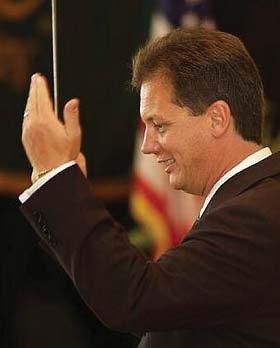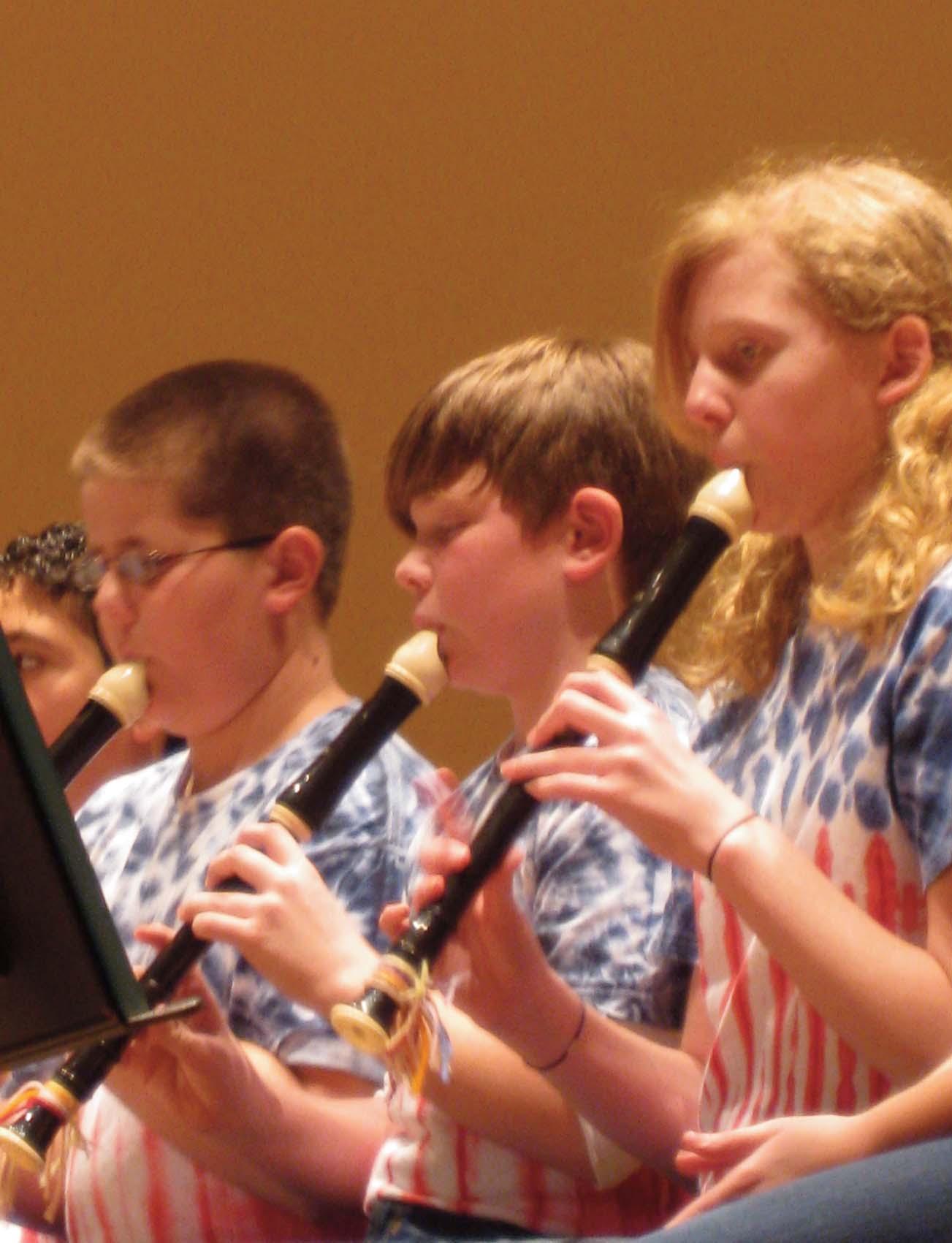




Introducing:
• Colorful, adhesive backed cloth stars easily stick to the safety neck strap
• Kingsley Kolor ® Recorders –available in 7 colors as well as traditional black
• Safety Neck Straps (U.S. Patent No. 6,384,307) available in 14 different colors
• Get recorders and neck straps in your school colors!
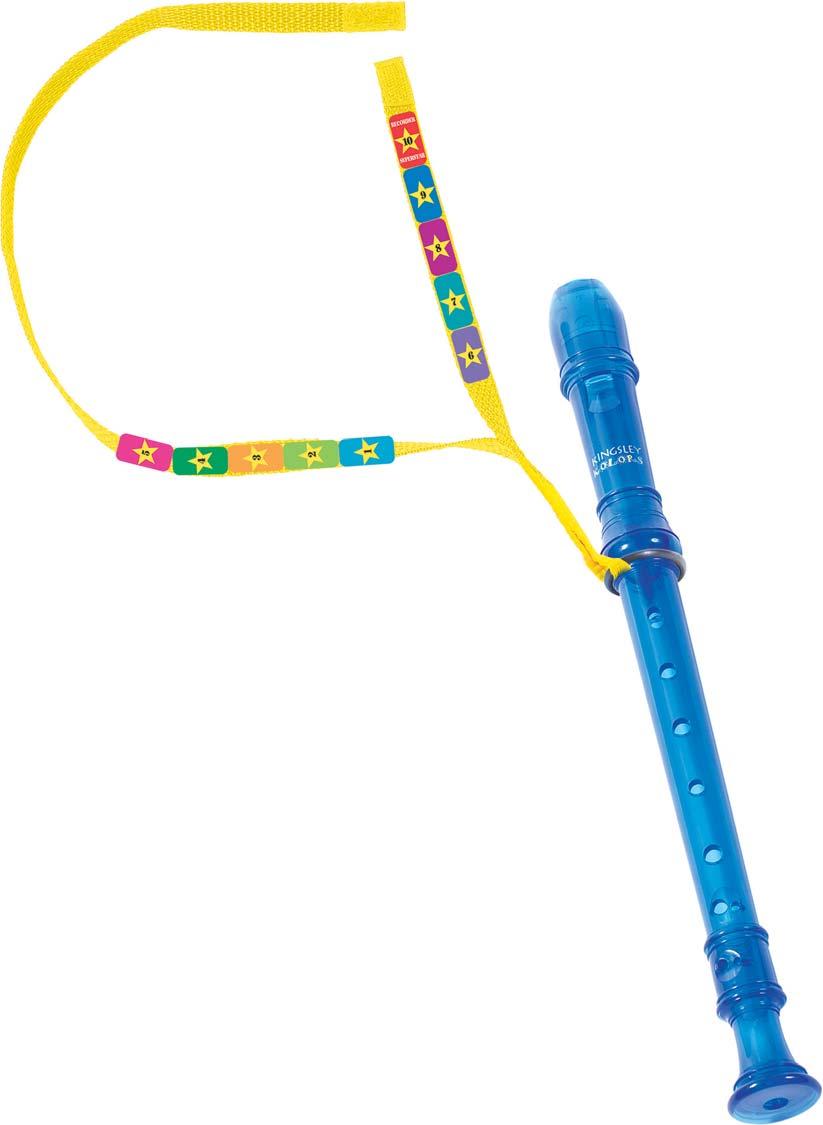
•Seven coordinated Reward Certificates
•Student Method Book is gently paced to ensure student success
•Imaginative, colorful illustrations enhance student enjoyment
•Music theory pages reinforce concepts and serve as an assessment tool
FREE Play-Along CD with every initial order for Be A Recorder Star ® Method Books

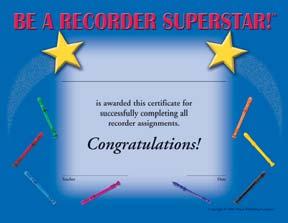

(classroom set of 30 method books required)
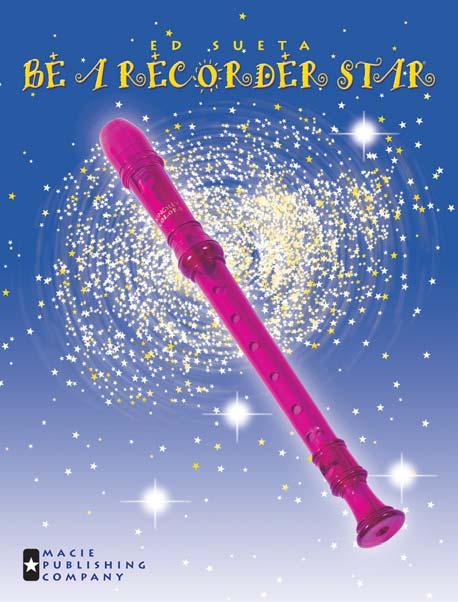

T heonlychoice—Yamaha. Why?Wehaveworld-classdesigners, state-of-the-artmanufacturingtechniquesandarecommittedto producingtheindustry’smostconsistent,superior-soundinginstruments available.Thesearejustthreeofthemanyreasonsthateducators dependonYamaha.Learnaboutthese instrumentsandmoreatyamaha.com/band

Garry Taylor, Editor 1600 Manor Dr. NE
Cullman, AL 35055 (256) 636-2754
amea@bellsouth.net
ADVERTISING & COPY DEADLINES
August issue: July 1
October issue: September 1
February issue: January 1
Send Ad Materials to: Garry Taylor, Advertising Manager 1600 Manor Dr. NE Cullman, AL 35055 (256) 636-2754
Unless otherwise indicated, permission is granted to MENC members to reprint articles for educational purposes.
Opinions expressed in this publication are not necessarily those of AMEA or the Editor.
All announcements & submissions are subject to editorial judgement/revision.
The Alabama Music Educators Association is a state unit of MENC:The National Association for Music Education, a voluntary, nonprofit organization representing all phases of music education in schools, colleges, universities, and teacher-education institutions. Active MENC/AMEA membership is open to all persons engaged in music teaching or other music education work.
Ala Breve is published three times a year (August, October, and February) by the Alabama Music Educators Association.

Subscription for members is $4.00 per year as part of annual MENC/AMEA dues.
Subscriptions for non-members is $15.00 per year. Bulk rate postage paid at Dothan, AL.
POSTMASTER: Send address changes to:
MENC 1806 Robert Fulton DR Reston, VA 20191
On the Cover:
President
breve

President
Pat Stegall
Muscle Shoals High School
1900 Avalon Avenue
Muscle Shoals, AL 35661
(256) 389-2682 School
(256) 389-2689 Fax
pstegall@mscs.k12.al.us
170 Kenwood Drive
Muscle Shoals, AL 35661
(256) 446-8396 Home
(256) 627-4661 Cell
Past President
John Baker
Enterprise High School
500 Watts Avenue
Enterprise, AL 36330
(334) 347-2640 School
(334) 347-3144 Fax
jbaker@enterpriseschools.net
602 Henderson Street
Enterprise, AL 36330
(334) 393-1376 Home
President-Elect
Steve McLendon
Dothan High School
1236 S. Oates St.
Dothan, AL 36301
(334) 794-0146 School
(334) 793-0986 Home
dhstigerband@aol.com
Recording Secretary
Carla Gallahan
212 Smith Hall, Troy University
Troy, AL 36082
(334) 670-3502 School
cgallahan@troy.edu
President, ABA
Harry McAfee
Hoover High School
1000 Buccaneer Dr.
Birmingham, AL 35244
(205) 439-1228 School
HMcAfee@hoover.k12.al.us
President, AOA
Penney Adair
1418 Longbrook Dr. NE
Cullman, AL 35055
(256) 775-6597 Home
(256) 339-9780 Cell
johnpenney@bellsouth.net
President, AVA
Damion Womack
The Montgomery Academy
3240 Vaughn Rd.
Montgomery, AL 36106
(334) 272-8210 ext. 261 School
Womack.D@montgomeryacademy.org
President, CME C
Robert Pendergraft
911 Crosshaven Pl. Apt 7 Birmingham, AL 35243
(256) 348-4287
rbpender@samford.edu
Collegiate ME C Advisor
Dr. Carl Hancock
University of Alabama
School of Music
Tuscaloosa, AL 35487
(205) 348-6335
chancock@bama.ua.edu
President, Higher Education
Dr. Mark Walker
Troy University
Long Hall
Troy, AL 36082
(334) 670-3281
mjwalker@troy.edu
President, Elem/General
Dr. Sara Womack
Greystone Elementary School
300 Village Street
Hoover, AL 35242
(205) 439-3200
(205) 439-3201 - fax
sara@music.org
swomack@hoover.k12.al.us
State Department of Education
Martha Lockett
Arts Education Specialist
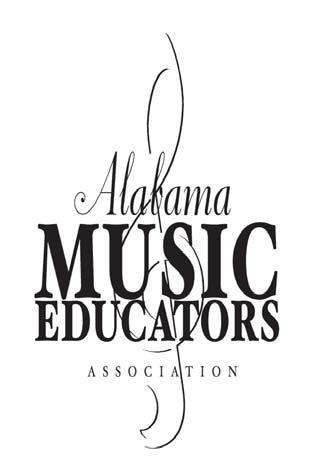
State Department of Education
Room 3339, Gordon Persons Building
50 N. Ripley Street, P. O. Box 302101
Montgomery, AL 36130-3833
334-242-8082
mlockett@alsde.edu
Executive Director
Editor, Ala Breve
Garry Taylor
1600 Manor Dr. NE
Cullman, AL 35055
(256) 636-2754
amea@bellsouth.net


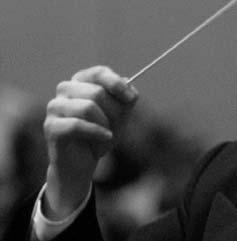


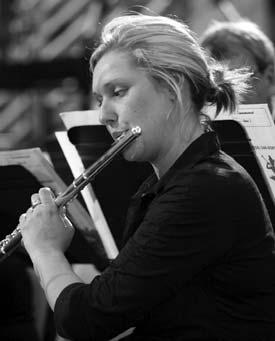
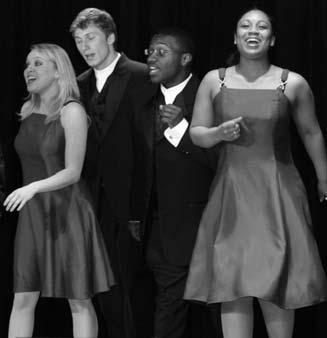
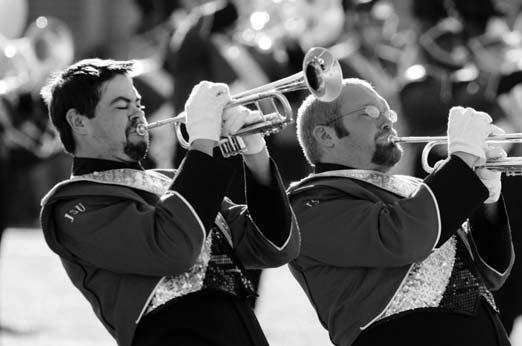

My life as a music educator has been filled with great mentors. Fortunately for me, the first friend I made in the sixth grade, when my family moved to Alabama in 1969, was a son of a band director. I was not in band at the time, but he was, and soon after I met him, I found myself holding a clarinet, squeaking out the notes to “Go Tell Aunt Rhodie.” I had always enjoyed music (mother had me marching around the room to the music of Sousa, with a toy trumpet in my hand and a drum around my neck when I was only three) so it just seemed natural to be a part of the band.

During those years I made many friends…almost all of them through the experiences we shared in band. Another best friend came along, in the seventh grade, whose father was also a band director. I was hooked. I had two best friends and both of their fathers were band directors. These two men were role models for me for the next 10 years. I listened in their homes as they shared stories of things they had experienced as teachers. I traveled with them to band events and witnessed them teaching private students and soaked in everything they said and did. I knew from watching them that being a band director was what I wanted to do.
As I progressed in my knowledge, I realized that being a band director was going to take a long time to master. There were so many different levels to understand. People kept being put in the right place to help me with my journey. Parents that were and still are very supportive…a youth director/choir director at church that was an


instrumental music major at UNA-to encourage me…a band director in college that was a clarinet player-to challenge me…a college roommate that was a jazz lover-to expand my musical interests…another band director that was incredibly good at teaching style and technique-to give me the building blocks…a principal in my first job that was a former band director- to put up with my immature mistakes…another principal that left me alone-to learn on my own…a businessman that helped me get the background needed-to work the business side of the job…a friend who graciously bowed out-to make it possible for me to come to Muscle Shoals…a superintendent and principal who stuck
right pathway. Finally…my wife who, because she is the daughter of a band director, understands how much time is required to do the job…most of the time. How could I not be a band director? Thanks to all of those people who pointed the way! I would be not be the person I am without those valuable mentors along the way.
by me and supported me-to help me get my feet on the ground…a leadership counselor who helped me develop a leadership program-to motivate my students…another principal who took a sincere interest in what band could do-to help students…a father-in-law who was a former band director of Muscle Shoals-to set the standards to try to achieve, my mentors as a teacher have been so numerous, but each one showed me the
As we wrapped up the AMEA Conference on Saturday, I couldn’t help but think of all those people that put me in the position to be able to serve as the President. I also was so thankful for those leaders that carefully planned our wonderful conference. Thanks to the AMEA Governing Board and our Executive Director, Garry Taylor, for their expertise and their passion for Music Education. We are so very blessed to have a thoughtful and committed board to rely on in planning. The University of Alabama School of Music and Dr. Skip Snead were very generous and cooperative in making the conference facilities available. Thanks to John Baker and his efforts to provide information to our FAME students.Thanks to our exhibitors for their part in making the conference a successful event. Thanks to Cindy Pass for her hard work organizing and heading up registration this year and for the past several years. Cindy has recently resigned as AMEA treasurer for health reasons and we will definitely miss her. Thanks to all those who volunteered their time and talent as performers, clinicians, presiders, registration workers, stage crew, and so many other duties. And finally, thank you for attending the conference…it was designed with you in mind by a trail of mentors.

Mastery of any and all tasks in life requires both instruction and practice. That process is true also for leadership on any level. This model is demonstrated clearly in the teacher education programs of our colleges through the following paradigm: college courses in music and education give the knowledge you need to be a music teacher, but student teaching must also be completed under the care of a veteran teacher that can help translate head knowledge to practice. The same structure is present in the framework of CMENC, a student-led organization. Each chapter has a slate of officers and each statehas a faculty advisor that serves as mentor and gives guidance much as the cooperating teacher would during student teaching. This allows student leaders to implement new ideas and strategies under the guidance of an experienced music educator. This is particularly true on the state level where students are allowed to plan both the Summit and Winter In-Service with the full support and assistance of the State Advisor and the Executive Director.
I want to outline several of the key lessons learned while I served on the board as an encouragement to those who are thinking of running for any leadership position within any organization while in college. My hope is that you will see the benefits far outweigh the time commitment. During my term as vice president I had the opportunity to chair a committee and assist in the planning of events which,I believe, haveprepared me for the challenges of the past year. The most valuablelesson gained during this time was a functional understanding of how the organization works and what avenues must be taken to get things accomplished. I had the privilege of working with the chapter reinstatement committee and finding chapters that were inactive. Our purpose was to reintroduce those chapters to CMENC and what it offered. This too was a learning experience, because on this committee were students from two
institutions. While having multiple schools represented was a great opportunity, it also taught me the difficulties of working with people from multiple places and trying to coordinate multiple schedules; this skill I found to be essential in planning for the summit this fall. The final lesson learned during this opportunity was coming together as different schools and working for the good of everyone. This at times meant compromising and not always keeping the good of any particular institution in the forefront but looking across the state and coming up with the best solution for all involved. All these qualities are essential to effectively function as a leader of any professional organization, and I count myself as fortunate to have learned many of these lessons with this group of students.
During my term as president I learned the most about leadership and the support structure of others while planning for the Fall Summit. Early on,the board made the Fall Summit a priority for this year and we were met with support every step of the way. The AMEA board was overwhelmingly supportive of the increased funding to make this opportunity available to the students in our state. Samford was a gracious host and allowed us the use of their facilities. The elementary division provided us the opportunity to begin our weekend with a performance they hosted on Friday evening. Even with all of this support I discovered the difficulties of reestablishing an event that had not been held in several years. Planning an event around the football schedules of all the schools in Alabama is a daunting task, but one that must be overcome to have a successful event in the Fall semester. We were able to successfully have a Fall Summit and provide students from four institutions the opportunity of getting to know one another while learning from Dr. Grunow, professor and chair of music education at Eastman School of Music, on applications of Music Learning Theory in the classroom.
This experience made me value my advisors tremendously. I realize that without both Dr. Nordlund and Dr. Hancock wanting this event to be successful, it easily could have been just

another great idea that never came to fruition. Both these professors were able to provide resources and alternative ideas to make the event even more successful. I consider myself very fortunate to have had the opportunity to work with these individuals. They started with the ideas of the students and helped us to think through things in a way that allowed us to address many difficulties before they happened. They also taught me personally that the professors and educators are really very accessible and genuinely interested in the students and in investing in them.
There is no concrete way to measure the success of an event, but for the purposes of continues improvement in years to come, it is important we look at the successes and short comings of every event we host. This year’s summit involved 60 students and four institutions; while those numbers are slightly higher than expected, the number of institutions which were involved was less than we had hoped. The lesson I believe that can be learned from this for application to future situations is that communication must happen early and often in a variety of media. That lesson will not only be applicable to me for future leadership positions in an organization but also is significant to implement in my classroom.
The AMEA In-Service also was a tremendous success. Not only were we able to put out a quality product, more people than ever bought that product. I never thought we would have had 149 collegiate members at the conference, but that is a tribute to not only AMEA, but also to the students and professors for realizing the importance of the opportunities presented at such an event. I am excited about the surge of momentum that I have been a part of in this organization, and I am confident the new board will continue to see growth in the state organization. There have been so many opportunities for growth in the areas of leadership, planning, and management that I never would have,had CMENC been set up differently. One such opportunity was having the vice president and I attend the MENC Biannual National Convention in 2008 with the help of Alabama CMENC. This provided an outstanding opportunity
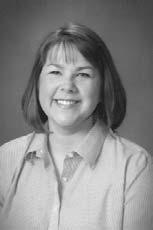
As my tenure as President comes to a close, I would like to reflect on what we have accomplished as a division. The Elementary/General Division established an annual Elementary Music Festival, enacted a major bylaws revision, and learned many new lessons and ideas from great clinicians, as well as from each other. We have an incredible Division! Let’s keep moving towards making great strides in elementary music education in our state.
The annual In-Service Conference was a great success. The Elementary/General Division had a lot of participation and also, sponsored an amazing performance by Paine Intermediate’s Recorder Karate All Stars. Please think of applying as a performing group for next year. We would love to have another fantastic showing!
Look for information in this issue regarding the 2009 Elementary Music Festival to be held October 2 with clinician Sue Mueller. This year, the
CME C (con’t)
Festival included almost 300 fourth and fifth grade students from thirty schools performing quality literature in great facilities under the leadership of an incredible clinician. The students, and teachers, always have a fun and educational time.
New officers were elected at the recent business meeting. Beth Davis, Somerville Road Elementary School in Decatur, will serve as President-Elect. While Lea Hoppe, Randolph School in Huntsville, will serve as Treasurer and Karla Hodges, Gardendale Elementary School in Jefferson County, will continue to serve as Secretary. Sharon August will assume the role of President. I would like to thank Beth Davis, Sharon August, and Karla Hodges for their outstanding leadership during their terms.
Please do not hesitate to e-mail me if you have any questions, comments, or concerns – sara@music.org.
to attend sessions and concerts by some of the most recognized names in music education as well as a chance to talk with other state officers from around the country and glean ideas that we were able to bring back, talk about,and adapt to fit our needs in Alabama. This also helped me in realizing just how accessible everyone in our field truly is. I can think of few other professions where people will go out of their way to help and want others to succeed because of the common goal we share of advancing music education in America, a goal that is only as strong as the weakest program.We are all in the field because we want to put forth our best to give our students rich opportunities and experiences.
Serving CMENC the past two years definitely will shape future choices and endeavors. I know now that with the help of hard working individuals around me and some guidance from faculty advisors,an event can be planned that impacts students at four universities. This knowledge will make me more willing to step outside of my area of comfort and attempt such an endeavor in the future, whether it is school wide, district wide, or state wide. I know of resources that I can use in the future in planning an event or teaching class; resources not limited to published materials of MENC and AMEA, but that of individuals I have worked withstudents, teachers, and professors who are gifted in different areas and who are only a phone call away. I believe that many of us never realize the wealth of knowledge and resources that are right here in our state. I am so thankful to have had the opportunity to have
Alabama AOSA Spring Workshop with Thom Borden at Green Valley Elementary School – Saturday, February 21
AMEA Elementary Music Festival with Sue Mueller at the Wright Center at Samford University – Friday, October 2
AMEA/Alabama AOSA Joint Workshop with Sue Mueller at Greystone Elementary School – Saturday, October 3
AOSA Conference in Milwaukee, WI –November 11-14

worked with each individual over the past couple years, and I am grateful for their help in seeing ideas through from the planning stages to the final product. With any organization, the testament to leadership is whether the organization is stronger after the leadership took office. I am pleased I can confidently say that both boards I have served on left the organization stronger than when we came. I realize I can never repay this organization or these individuals for the time and resources they have invested in me, but I intend to pass on that same time and resources to students that cross my path in the future,and that is how music education will remain strong in our state and strengthen across the nation.

Our clinician, Sue Mueller, BM, MM, OS Level I-III, master class certification, taught K-5 music for the Clark County School District, Las Vegas, Nevada, for 25 years until her appointment as Assistant Professor of Music Education for the University of Nevada Las Vegas. She is an active presenter for local chapters and state and national AOSA and MENC conferences. Sue teaches Level I basic pedagogy in the UNLV Orff Schulwerk Teacher Training Course, Samford University, Boise State and Level II Pedagogy and Recorder at Stetson University. She has served on the National Board of Trustees for the American Orff-Schulwerk Association as Region II Representative (1996-1999), National Conference Chairperson (2002 conference), Vice President (2003-2005), Past President (20052007) and currently is the National Conference Chairperson for the AOSA conference in 2010.

The cost of the Festival is $20 per student. Each school may bring up to 10 students, who should be elected by their music teacher based on the following criteria:
1. Students must be in 4th or 5th grade.
2. Students should demonstrate a high level of interest and participation in the local music program.
3. Students must be able to sing on pitch and follow a conductor.
4. Students must be willing to practice and memorize music before the Festival.
5. Students must exhibit self-discipline.
The performance pieces will include:
1. “Cantar!” by Jay Althouse – two-part with piano accompaniment (J.W. Pepper 3251618)
2. “It Don’t Mean a Thing (If It Ain’t Got That Swing)” arranged by Mark Brymer – SSA with instruments (arranged by Gloria Fuoco-Lawson) and movement (J.W. Pepper 1913250)
3. “One Small Step” by Sally Albrecht and Jay Althouse – two-part with piano accompaniment (J.W. Pepper 3071834)
4. “I Am a Small Part of the World” Sally Albrecht and Jay Althouse – two-part with piano accompaniment and solos (J.W. Pepper 1827591)
5. “E Hunga” arranged by Karen Medley – unison with instruments and alto recorder
6. “Shake the Papaya Down” by Ruth Dwyer and Judith Waller – SSA with instruments (arranged by Gloria Fuoco-Lawson) (J.W. Pepper 1925650)
7. “Dansi Na Kuimba” by Dave and Jean Perry – three-part with unpitched instruments, piano accompaniment, and riser movement (J.W. Pepper 3016110)
8. “Boys and Girls Come Out the Play” by Carl Orff – unison with instruments ( Music for Children, Volume II, Murray Edition , page 74)
Further information can be found on the Elementary/General Division website at www.alabamamea.org. You can also contact Festival Director, Dr. Sara Womack, at sara@music.org.

20 Montev Depart Young 009 aAlabam allo, Music of ment Musicians’





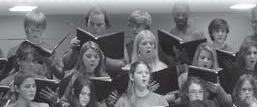


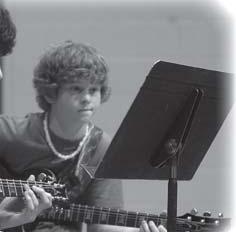
Who? Guitarists, Instrumentalists, Pianists, and Vocalists
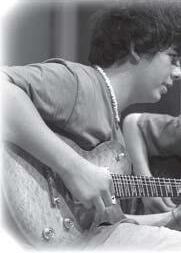
Ages 11–18
When?
11–18 and Ins 21–


Vocalists talists,trumen
Sunday, June 21–
June
Friday, June 26, 2009
Where?
University of Montevallo
2009 or


of
shipScholarrs
2 June visit ormation
Available Are ps
Scholarships Are Available

For more information visit www.montevallo.edu/music or call 205.665.6670
Montevallo ala breve 13
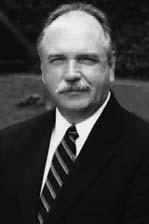
I was very pleased, even awed, by the recent events at the Alabama Music Educator’s Conference. I’m sure we were all inspired by the remarks of our Keynote Speaker, Dr. Tim Lautzenheiser. The concerts were all outstanding and the clinics were very informative and supportive. I hope you were one of the nearly 250 band directors that we had in attendance. Let’s take this opportunity to thank the music department at the University of Alabama, Dr. Ken Ozello and Dr. Randall Coleman, for hosting our conference and also presenting wonderful performances and clinics. Please make your plans to join us again next year and please also apply to share your expertise by presenting a clinic or having your band perform. Doing either will also certainly offer you and your program a lot of growth and improvement.
Here’s wishing you the greatest success for the remainder of the year. I hope you will continue to support all the remaining ABA events by participating in District and State Assessments, Solo and
Ensemble, All-State Solo Festival and attending the All-State Band Festival even if you don’t have students who are participating. Remember that we will be discussing and voting on some very important legislation that has recently beenproposed. Be sure to read over the proposals as they are published in this publication. I would like to thank the State Assessment Committee for their outstanding effort to carefully and thoughtfully develop a proposal that not only addresses the problems we are facing but is progressive and forward thinking. Special thanks are due Dr. Carl Hancock for developing the online questionnaire and providing the results of the research. Many ideas have come from the research and committee that will help to develop clinics and our mentoring programs. The ABA leadership wants to continually find ways to help you develop your skills as a director. We want you to be able to “fill the gaps” you may have in support, finances, equipment, instrumentation, personnel, or whatever may hinder you from selecting an appropriate piece from the cumulative list and performing it at State Assessment. Please call or email us if you have questions or concerns that we can help you with.
The second proposal addresses problems the Music Selection Committee faces
with special requests for approving music that is not already on the cumulative list. Please contact Chuck Eady with your thoughts and ideas about this proposal.
Finally, the proposal to raise the All-State registration fee is part of a plan to meet the rising costs of doing business and to restore ABA to a sound financial footing. The ABA leadership is always conscientious to use our income well and not to financially overburden any particular school or district. In this time of economic woes and proration, it should be easy to understand that something must be done immediately. The reports I am hearing of future proration are dismal. We should all begin to tighten our belts and to set aside a little for the coming “rainy days”. We all will need to examine our spending plans, especially travel, and adjust accordingly. But I know that through your perseverance and dedication, we will still be able to offer our students the music education that they deserve. Just remember…..tough times don’t last but tough people do! As always, please contact me if I can help you in any way. It has been an honor to serve as your ABA President and as my term ends, I’m still looking forward to helping you for years to come!
God Speed and God Bless!

Since its debut in 1992, the Music for All Concert Band Festival, formerly Bands of America (BOA) ational Concert Band Festival, has been acknowledged as one of the premier educational events for America's high school concert bands. The Festival's mission is to focus a national spotlight on the core of our nation's band programs, the concert band. This year’s festival will be held in Indianapolis, Indiana on March 19-21 and will feature two Alabama bands, the Hillcrest High School
Wind Ensemble, conducted by Andy Pettus, and the Shades Valley Symphonic Band, conducted by David R. Allinder. Eighteen groups from around the country were selected to participate in this prestigious event. Each group will perform a full concert for a panel of esteemed band conductors. Students and directors will receive clinics and performances from worldrenown musicians. In addition, 8 musicians from Hillcrest High School will be participating in the National Honor Band.
Auburn University, April 15-18, 2009
Note: Registration badges will be required for admission to all rehearsals, meetings, clinics, and exhibits.
Wednesday, April 15, 2009
8:00 a.m. All-State Solo Festival - Goodwin Music Building, Recital Hall and Choir Room
7:30 p.m. All-State Solo Festival Finals Concert
Goodwin Music Building, Recital Hall (Open to the Public)
Thursday, April 16, 2009
12:30 p.m. Meeting of ALL Band Directors
Goodwin Music Building, Recital Hall
ABA Vice-President Chuck Eady, presiding
Friday, April 17 continued
12:00-1:15 p.m. Phi Beta Mu Luncheon Conference Center, Governors Room
1:30-5:00 p.m. Exhibits Open -Ballroom A
1:30-5:00 p.m.Red Band Rehearsal - Student Activities Bldg.
1:30-5:00 p.m.White Band Rehearsal - Band Hall
1:30-5:00 p.m.Blue Band Rehearsal - Auxiliary Gymnasium
1:30-5:00 p.m.Jr. High Band Rehearsal - Ballroom B
3:30-4:30 p.m. Alabama Jazz Educators Meeting
Sallie White, President Conference Center Auditorium
1:00 p.m.
Auditions for all band students according to schedule mailed to directors by ABA
1:00-4:00 p.m. Exhibits Open
Auburn University Conference Center Ballroom A
5:30 p.m. Audition results posted at rehearsal sites
Unassigned personnel posted at all four sites
6:00-7:30 p.m. Exhibits Open -ConferenceCenter,BallroomA
6:30-9:30 p.m.Red Band Rehearsal
Conductor- Dr. Johnnie Vinson
Student Activities Bldg. (closed rehearsal)
6:30-9:30 p.m.White Band Rehearsal
Conductor - Robert W. Smith
Goodwin Band Hall (closed rehearsal)
6:30-9:30 p.m.Blue Band Rehearsal
Conductor - Dr. Joseph Ardovino
Auxiliary Gymnasium (closed rehearsal)
6:30-9:30 p.m.Jr. High Band Rehearsal
Conductor - Suzanne Winter ConferenceCenter,BallroomB(closedrehearsal)
7:00-9:00 p.m. ABA Board Meeting Conference Center, Meeting Room A
12:00 midnightCurfew for all participants. Directors are responsible for their students.
Friday, April 17, 2009
8:30-12:00 noonExhibits Open-BallroomA
8:30-11:30 a.m.Red Band Rehearsal - Student Activities Bldg.
8:30-11:30 a.m.White Band Rehearsal - Band Hall
8:30-11:30 a.m.Blue Band Rehearsal - Auxiliary Gymnasium
8:30-11:30 a.m.Jr. High Band Rehearsal - Ballroom B
9:00-10:00 a.m.ABA General Business Meeting Conference Center, Auditorium
10:15-11:00 a.m. ABA Open Forum Conference Center Auditorium
8:00 p.m.Host Night Concert Auburn University Symphonic Band Rick Good, Conductor Opelika Performing Arts Center
9:30-11:00 p.m.Informal reception for directors, clinicians, and exhibitors sponsored by the AU Bands at the Conference Center, Lounge
12:00 midnightCurfew for all participants. Directors are responsible for their students.
Saturday , April 18, 2009
8:00-8:40a.m.Red Band Rehearsal - Student Activities Bldg.
8:15-9:00 a.m. ABA Board Meeting Conference Center Auditorium
8:30-12:00 a.m. Exhibits Open - Ballroom A
8:45-9:25 a.m.White Band Rehearsal - Student Act. Bldg.
9:00-9:45a.m. ABA General Business Meeting Conference Center, Auditorium
9:30-10:10 a.m.Blue Band Rehearsal -Student Act. Bldg. 10:15-11:00 a.m.Jr. High Band Rehearsal - Student Act. Bldg. 11:30 a.m. All-State Band Festival Concert I Student Activities Building Jr. High Band Blue Band
p.m. All-State Band Festival Concert II Student Activities Building White Band Red Band
Both concerts are open to the public. There is no admission charge.


Directors National Association. He is also a former member of the Board of Directors of the National Band Association and is a Past President of Rho Chapter of Phi Beta Mu International Bandmasters Fraternity. In addition, he is a member of Music Educators National Conference, Phi Mu Alpha Sinfonia, Kappa Kappa Psi, and ASCAP.
Johnnie Vinson is Director of Bands and Professor of Music Emeritus at Auburn University. He received the Bachelor of Science and Master of Education degrees in Music Education from Auburn, and the Doctor of Arts degree in Music Theory from the University of Mississippi. Dr. Vinson retired from Auburn University in June, 2007, after a 36-year career with the Auburn Bands. Prior to joining the Auburn faculty, he taught in the public schools of Columbus, Georgia, and worked as a Graduate Assistant with the bands at the University of Texas and University of Mississippi. At Auburn, he supervised the overall band program, conducted the Symphonic Band, and taught conducting and band arranging. He was also faculty sponsor to Auburn's Theta Lambda Chapter of Tau Beta Sigma.
With nearly 400 published works, Dr. Vinson is a widely recognized arranger/composer of music for band, writing primarily for the Hal Leonard Corporation. He has served as an adjudicator and clinician throughout the United States.
Dr. Vinson has been active professionally as a member and officer of a number of organizations. He has served as the National Vice President for Professional Relations for Tau Beta Sigma, is a Past President of the Alabama Music Educators Association, and is former Alabama State Chair of the College Band
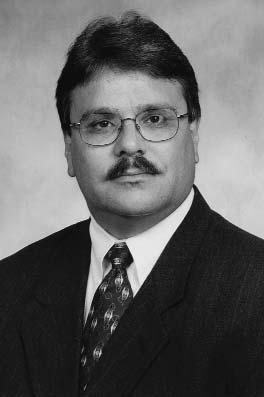
Dr. Vinson was elected to membership in the prestigious American Bandmasters Association in 1994, and has twice served as a member of its Board of Directors. He has been presented the Distinguished Service to Music Medal by Kappa Kappa Psi and the Citation of Excellence by the National Band Association. In January, 1998, he was elected to the Alabama Bandmasters Hall of Fame, and in January, 2008, was a member of the inaugural class inducted into the Alabama Music Educators Hall of Fame.
works for winds and percussion have been programmed by countless military, university, high school, and middle school bands throughout the United States, Canada, Europe, Australia, South America and Asia. His Symphony #1 (The Divine Comedy), Symphony #2 (The Odyssey) and Africa: Ceremony, Song and Ritual have received worldwide critical acclaim. His educational compositions such as The Tempest, Encanto, and The Great Locomotive Chase have become standards for developing bands throughout the world. His numerous works for orchestras of all levels are currently some of the most popular repertoire available today. His music has received extensive airplay on major network television as well as inclusion in multiple motion pictures. From professional ensembles such as the United States Navy Band and the Atlanta Symphony to school bands and orchestras throughout the world, his music speaks to audiences in any concert setting.
Robert W. Smith (b. 1958) is one of the most popular and prolific composers of concert band and orchestral literature in America Today. He has over 600 publications in print with the majority composed and arranged through his long association with Warner Bros. Publications and the Belwin Catalog. He is currently published exclusively by the C.L. Barnhouse Company and serves as the Director of Product Development for C.L. Barnhouse and Walking Frog Records.Mr. Smith’s credits include many compositions and productions in all areas of the music field. His original
As a conductor and clinician, Mr. Smith has performed throughout the United States, Canada, Japan, Europe and Australia. He is the principal conductor of the American Symphonic Winds and the American Festival Philharmonic Orchestra, professional recording ensembles based in Washington D.C. He is currently working on the production of Symphony No. 3 (Don Quixote), the fourth in a series of compact disc recordings of his best-known works for concert band. In addition, he is co-creator of the Expressions Music Curriculum. This comprehensive Pre-K through 12 music program includes Band Expressions, an innovative new approach to teaching music through the band.
Mr. Smith is currently teaching in the Music Industry program at Troy University in Troy, Alabama. His teaching responsibilities are focused in
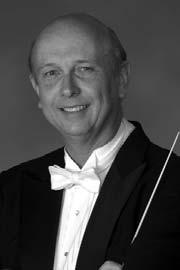 Red Band
Johnnie Vinson
White Band
Red Band
Johnnie Vinson
White Band
music composition, production, publishing and business. In addition, he is a managing partner and conductor/producer for American Audio Unlimited, an audio production company specializing in recordings for concert band and orchestra.
Guild, Alabama Bandmasters Association, Alabama Music Educators Association, Music Educators National Conference, International Association of Jazz Educators, and College Band Directors National Association.
of superior ratings at District, State and National Competitions and Festivals. Prior to her position at Vestavia, Mrs. Winter taught at Rutledge Middle School in Midfield, Alabama, and at Smith Middle School in the Birmingham City School System. She was named as Birminghamʼs Teacher of the year during her tenure in the City School System.
Joseph P. Ardovino is the Director of Bands and Associate Professor of Music at the University of Montevallo where he has taught since 1991. Dr. Ardovino’s responsibilities at the University include conducting the University Wind Ensemble, directing the University Jazz Ensemble and Trumpet Ensemble, teaching trumpet, and conducting and performing with the Faculty Brass Quintet.
Dr. Ardovino received the Doctor of Musical Arts degree in trumpet performance from the University of Alabama. He holds the Master of Music degree in trumpet performance from the College-Conservatory of Music, University of Cincinnati, and the Bachelor of Music degree in trumpet performance with teacher certification from the University of Alabama. As a trumpet player, Dr. Ardovino is an active recitalist as well as a tenured member of the Tuscaloosa Symphony, and performs with the Alabama Symphony periodically. Yearly, Dr. Ardovino conducts various honor bands around the state and judges many band and solo competitions as well. He also serves as coordinator and conductor for the annual UM Honor Band Festival and All-State trumpet clinic. Dr. Ardovino is a member of the International Trumpet

Suzanne Winter retired in June, 2007, after 33 years of teaching. She taught at Pizitz Middle School in Vestavia Hills for the last 13 years. While at Pizitz, her bands consistently received superior ratings at District, State and National Festivals. Mrs. Winter was named District IV Alabama Teacher of the Year while at Pizitz as well as receiving the John Philip Sousa Legion of Honor Award for outstanding contributions to Middle School bands and music.
During her 33 years of teaching, Mrs.Winterʼs band received over 28 years
Suzanne has been an active adjudicator and clinician for the past 25 years in Alabama. Georgia, Tennessee, South Carolina, Mississippi and Louisiana. She is the wife of Dr. Clifford M. Winter, retired director of Vestavia Hills H.S. They live in Jemison. Al., on 20 acres in a log cabin on a small private lake, with 2 cats and a Labrador named Bogart. Her education background is Troy State University, B.S.in music and English, and the University of Alabama, Masters and AA in music education. Her affiliations are MENC, NEA, and Phi Beta, Mu. Mrs. Winter continues her musical interests by mentoring, volunteering for local bands, as well as judging and honor bands. Her non-musical interests include quilting, reading, travel, photography and computer games. She is an active member of Southminster Presbyterian Church in Vestavia Hills, Al.






June 10-21, 2009
June 14-20, 2009
June 16-19, 2009
June 21-27, 2009
June 24-27, 2009
June 24-27, 2009
June 28-July 11, 2009
June 28-July 11, 2009
June 28-July 11, 2009


July 12-July 17, 2009

July 12-July
Honors Piano Camp*
Choral Ensemble Camp

Double Reed Workshop
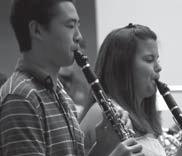
Jazz Ensemble Camp
Tuba & Euphonium Workshop
Double Bass Workshop
Senior High Band Camp
String Orchestra Camp
Honors Chamber Winds*
Marching Band Leadership Camp
Middle School Band Camp
 Blue Band
Joseph P. Ardovino
Middle School Band
Suzanne Winter
Blue Band
Joseph P. Ardovino
Middle School Band
Suzanne Winter
 Mark Walker, President, Higher Education Division
Mark Walker, President, Higher Education Division

taking place throughout Alabama that has the potential to impact our future practice and the education of our students.
The AMEA Conference concluded last Saturday and if you were not able to attend, you missed something really special. The slate of clinics and sessions, throughout the divisions, were superb. Dr. Tim Lautzenheiser was the keynote speaker, and - as those of you who have had the singular privilege of hearing Dr. Tim speak know - he filled the AMEA General Session with a renewed sense of purpose, mission, and enthusiasm. We all got a “pat on the back” from Dr. Tim and everyone left the session with a joyous sense that, regardless of the various hardships music educators sometimes face, we are on the right track.
The HED sessions were well attended and well received. Dr. James Zingara and the Troy University Trumpet Ensemble presented an excellent clinic with illustrative live examples of innovative rehearsal techniques with homogenous instrument groupings. Dr. Jane Kuehne presented a very interesting and interactive session on teaching sight singing to beginning choirs and Dr. Rudy Barraca presented a lively and illuminating session on teaching music appreciation. Additionally, the HED Recital Series “Old Chestnuts and New Favorites” again displayed the prodigious talent, artistry, and teaching that is taking place in Alabama’s universities. We truly have world-class artist-teachers in studios throughout our great state. Special thanks goes to Dr. Tim Phillips, Professor of Clarinet at Troy University, for organizing this recital series. Finally, emerging research was presented at the annual HED Research Poster Session. This session is particularly important because it offers a showcase for important research that is
At the HED business meeting, the division voted to create a new PresidentElect office. The President-Elect’s primary responsibility will be to organize and preside over the HED Recital Series and assist the President with the selection of clinics for AMEA. He or she will assume the office of the President after her or his term concludes. Additionally, it was decided that the Poster Session and HED Mixer would take place at the same time and place, so that the HED members can socialize and review important research at the same time. Also, the members present discussed possible HED keynote speakers and clinicians for the 2010 Conference.

Finally, Dr. Diane Orlofsky, as Research Division chair, is heading up the creation of an Editorial Board to facilitate the review and publication of articles for a peer-reviewed section of the Ala Breve. This truly exciting development will provide yet more relevant and topical research to our state publication. I will disseminate the details of the Editorial Board and policies/practices in a later edition of the Ala Breve.
This is an exciting and challenging time for Music Education, not only in our state, but also throughout our country. If the 2009 AMEA Conference is any indication, Alabama is on the right track, and we can be proud of our work, our institutions, and our students.
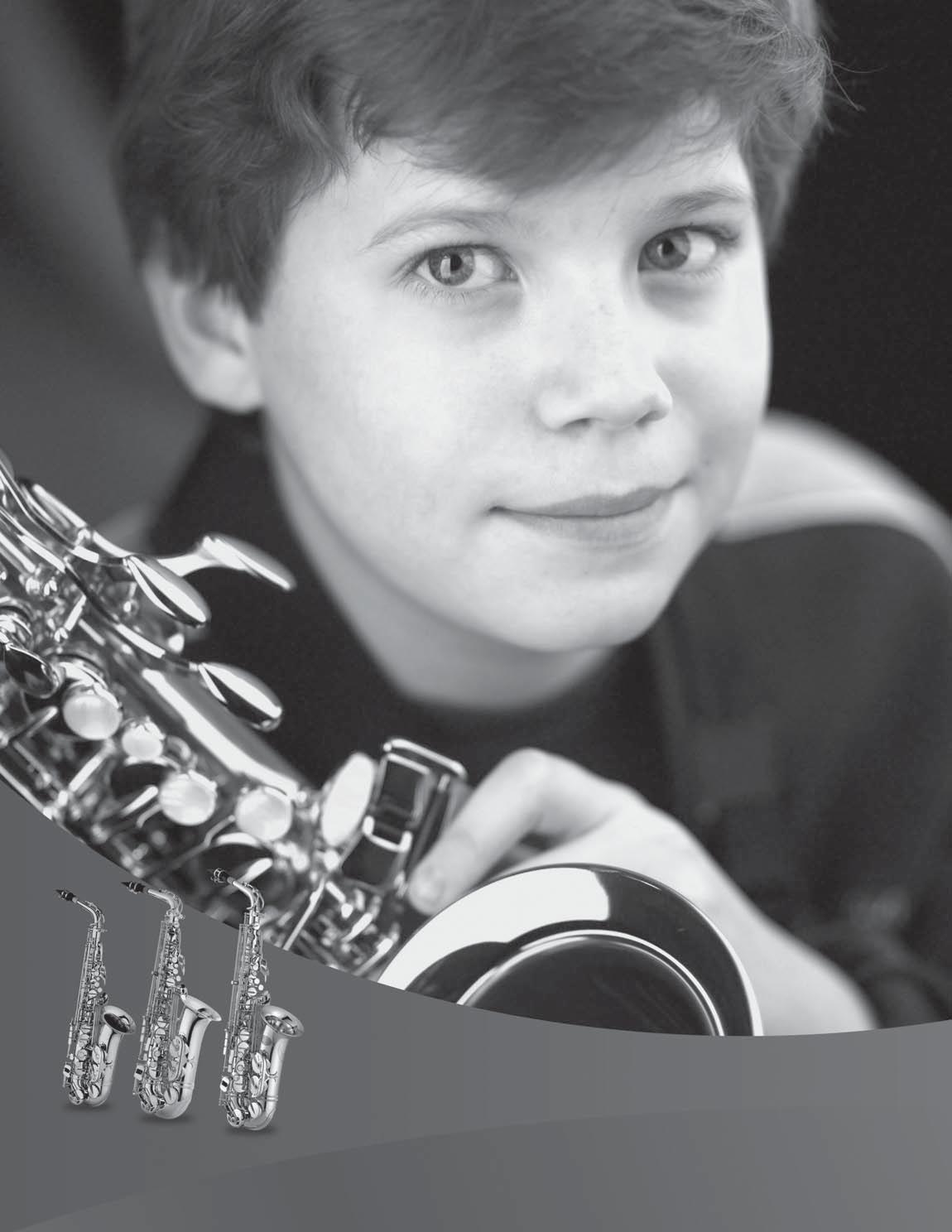
Some of the most important things in life are not on the test, but in the imagination.
Music education builds the skills needed to cultivate children’s creativity and innovation, which is essential in preparing them for the 21st century workforce. Together, we must make sure that students have access to music education and encourage their participation in music making.
Believe in music. Visit www.supportmusic.com to help keep music education strong in your community!

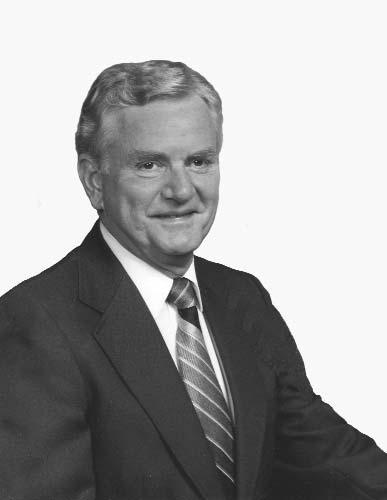
dance jobs around Mobile and New Orleans, developing a love of jazz. After graduating from Murphy High School in 1951, he decided to come to Auburn University with a friend to major in Aeronautical Engineering. After only two weeks, he realized he should change his major to Music Education.
During his college years, Tommy was active in a number of music-related organizations, including the A.U. Marching Band, Concert Band and the Auburn Knights Orchestra.
his A.H.S. Symphonic Band received the John Philip Sousa Foundation’s Sudler Flag of Honor, perhaps the highest honor that can be bestowed on a high school concert band.
Tommy King Goff, longtime Band Director at Auburn High School, passed away on September 25, 2008, at East Alabama Medical Center. A memorial service was held Wednesday, October 1st, at the Auburn United Methodist Church with Dr. George Mathison officiating.
Tommy Goff was born June 13, 1933 in Mobile, Alabama. A self-described “C and D student” until he discovered the trumpet and the band, Tommy found that his new passion fueled a pursuit of excellence in other areas of his life as well. During high school, he also made extra money playing

Upon graduation, he accepted the position of Band Director at Lee County High School (now Auburn High School). It became the only job he ever had. In the late 1960’s, a new Auburn High School was built, and the A.H.S. band program flourished.

During Tommy Goff’s thirty-two years in the Auburn City School System, the A.H.S. bands - concert, marching, and jazz (lab)all became known for their excellence, innovation, and mature playing style. Tommy and the bands he directed won many awards, gave a number of invited performances, and received numerous superior ratings at State Contest. In 1987,
A number of Tommy’s former students went on to become professional musicians and band directors, which pleased him immensely. Following his retirement in 1988, he continued to stay active in the music field by adjudicating, teaching private lessons, and writing and arranging music for small ensembles. Throughout his life, Tommy was a devoted Auburn University football fan, as well as an active participant in the annual Auburn Knights Reunion. He was a member of Rho chapter of Phi Beta Mu and was elected to the Alabama Bandmasters Hall of Fame in 1989.
Everett Johnson, who served as Assistant Band Director at Auburn high School from 1983 until 2005, wrote the following, “Many of his students credit him with being one of the most important influences in their lives. Tommy Goff was truly one of the most inspiring, unique, and outstanding individuals most of us will ever know, and the Auburn High School Band “Family” will never forget him.”
During my first year of teaching, I attended the AMEA In-Service and the MENC Southern Division Conference. I heard excellent choirs that demonstrated excellent tone, diction, and fine articulation. I thought to myself, I want my group to sound just like that, but how? Dianne Johnson, a very good friend of mine gave me this bit of information “stop complaining and build your program”. I have never forgotten these words and they have stayed with me ever since.
I decided that in turn to build a successful program, I needed the proper tools. I began to read more about choral music, I decided to return to school to pursue a graduate degree in choral conducting, I attended more workshops and conventions and I began to visit classrooms of veteran choral directors in order to seek guidance. Today, I continue to seek help and guidance in order to become a more efficient choral educator; I hope you are doing the same. Listed below are a few techniques that I have found helpful to me as I continue to learn more about choral music. Please let me know about techniques that you have used in your classroom that have been successful. We all need help!
In order to achieve excellent choral tone, singers should develop unified concepts of pitch, vowel, diction, rhythm, articulation,
dynamics, balance, and timbre.
In rehearsal, we should require that our singers:
- Sing precisely the same pitch
- Sing precisely the same vowel
- Sing exactly the same rhythm
- Sing precisely the same articulation: staccato, legato, marcato, tenuto.
- Sing a unified dynamic level
- Be sensitive to the need to balance all voice parts.
“ If we do these things, then I rarely find the need to say, “ Blend the sound”- Robert Russell, University Southern Maine
The Use of Warm-ups in a Choral Rehearsal
I believe that warm-ups are very important to every rehearsal. Some directors believe that warm-ups are not that important because students have used their vocal instrument before coming to class. I would like to share with you a few suggestions regarding warm- ups from the book Choral Conducting Symposium by Decker and Herford
Warm-ups have pegagogical potentional, although the conductor, does not have to make this obvious to the chorus. They are an excellent way to focus the attention of the chorus on the singing process. Warm-ups can help the singers releate breath support to tone production. The warm-up procedure should be consistent with those employed in vocal pedagogy. Singing in chorus maybe the only vocal training many members will receive, so the conductor can use the warmups to share some vocal techniques and
disciplines with singers.
The warm-up procedure should vary for rehearsals although the purpose should remain the same. The warm-up procedure can assit in the devlopment of vowel sounds and good tone production, the results being a collective precision in enunciating and sustaining uniform vowel sounds and a collective sensitivity toward pitch accuracy.
Decker, Harold A. Herford, Julius, Choral Conducting Symposium
Perhaps no single technique available to a conductor can produce as dramatic and far reaching effects as adjusting the seating arrangement of a choral ensemble to maximize both the rehearsal room and the voices within your choir.
Many pitch problems are the result of a lack of careful seating arrangements. Without an acoustic standing procedure, it is virtually impossible for voices, especially larger voices, to sing freely, and larger voices will be accused of “ not blending”. All of this can be avoided by carefully considering how to arrange the singers within your choir”
James Jordan - The Choral Warm-Up
Please plan to attend All-State Choral Festival this year. Our clincians are looking forward to working with our students. I truly believe that this organization has established the reputation to have one of the best All-State Festival’s in the South. This is due to all of your hard work and dedication to promote choral music in Alabama. Keep up the good work.
The Alabama Vocal Association is currently accepting applications for an Executive Secretary position. Listed below is a job description. Interested applicants should send resume to:
Damion Womack, President, Alabama Vocal Association, 3240 Vaughn Rd, Montgomery, Al 36106.

JOB DESCRIPTION
- Current member of MENC/AVA
- Have knowledge of The Alabama Vocal Association
- Have knowledge of the handbook (Experience in active Alabama choral program preferred)
- Have experience with QuickBooks, accounting programs, and office software programs
- Attend all Alabama Vocal Association activities
- Maintain necessary documents
- Prepare records and material for each Alabama Vocal Association State event
- Provide other specified services by the Alabama Vocal Association Board (see complete listing on alavocal.org)
Please provide a current copy of your MENC membership, and three references.

Wednesday, February 25, 2009
12:00 NoonBoard Meeting, Wright Lower Lobby
3:00-5:00OCS Competition - Male
Brock Recital Hall
3:30-4:30OA Auditions
Bolding Studio (BBS311)
5:00 OCS Group Picture (Foyer)
5:30-7:00OCS Competition - Female
Brock Recital Hall
Thursday, February 26, 2009
8:00 -11:00Show Choir Rehearsal
Brock Recital Hall
8:30Breakfast Meeting Drury Inn (President, President-elect, Clinicians & Coordinators)
10:30General Assembly (Directors and Students) Wright Concert Hall
11:30-1:30All-State Rehearsals
HS SATB - Wright Concert Hall
HS SSA - Brock Recital Hall
HS TTBB - Hanna Arena
MS Mixed - Reid Chapel
MS Treble - Cassesse Rehearsal Hall
1:30-3:00Lunch Break
3:00-5:30All-State Rehearsals (same locations)
5:30-7:30Dinner Break
7:30-9:30All-State Rehearsals (same locations)
11:00Curfew
Friday, February 27, 2009
8:30-11:00MS All-State Rehearsals
MS Mixed - Wright Concert Hall
MS Treble - Cassesse
Friday, February 27, 2009 (con’t)
8:30-11:30HS All-State Rehearsals
HS SATB - Reid Chapel
HS SSA - Brock Recital Hall
HS TTBB - Hanna Arena
9:00 - 10:15AVA General Meeting
Harrison Theatre
11:00.-1:00Lunch Break (MS)
11:30-1:30Lunch Break (HS)
11:30-1:00AVA Board Luncheon
Wright Mezzanine
1:00 -4:00MS All-State Rehearsals
MS Mixed - Cassesse
MS Treble - Wright Concert Hall
1:30-4:30HS All-State Rehearsals
HS SATB - Reid Chapel
HS SSA - Brock Recital Hall
HS TTBB - Hanna Arena
4:00-6:30Dinner Break (MS)
4:40-6:30Dinner Break (HS)
5:30-6:15Show Choir Rehearsal
Wright Concert Hall
6:30Call Time for Concert (performers seated)
7:00All-State Middle School and High School Showchoir Concert
Saturday, February 28, 2009
8:00-9:00SATB Dress Rehearsal - Wright Concert Hall
9:00-10:00SSA Dress Rehearsal - Wright Concert Hall
10:00-11:00TTBB Dress Rehearsal - Wright Concert Hall
12:30Call Time for Concert (performers seated)
1:00All-State High School Concert
adolescent voice. Dr. Gackle is the editor of Choral Artistry for the Singer with Walton Music and the Lynne Gackle Choral Series for Colla Voce Music, Inc.




Dr. Kevin Fenton, Director of University
Singers and Associate Professor of Choral Conducting and Ensembles at Florida State University since 2000, holds the Ph.D. from Florida State University, the M.M. from the Conservatory of Music at the University of Missouri in Kansas City and the B.M.E. from Friends University in Wichita, Kansas. His prior appointments include Director of Choral Activities at James Madison University and Virginia Tech, as well as the Topeka High School. On nine occasions, he has conducted ensembles in performances for state and regional conventions of the American Choral Directors Association and the Music Educator's National Conference. As a result of his positive approach to choral conducting, Dr. Fenton has served as a clinician for numerous workshops, honor choirs and clinics in twenty-six states throughout the country, including guest conducting all-state honor choirs in Oklahoma, West Virginia and South Carolina in 2007. During the summer of 2007, he conducted the Beijing International Choral Festival Choir with China's People's Liberation Orchestra as a part of China's Choral Conductor's Meeting. Recently Kevin authored the book “Foundations of Choral Conducting,” and he has also written several articles appearing in the Choral Journal, the Music Educators Journal , and the Bulletin for Historical Research in Music Education. He is a recipient of the Gamma Mu Chapter of Delta Omicron Music Professor of the Year Awardand has been nominated for a Florida State University Teaching Award for Excellence for the past six years. Dr. Fenton served as National Chair of the ACDA College/University Repertoire and Standards Committee for four years and is currently President-Elect for Florida ACDA.
Dr. Lynne Gackle is an active clinician, conductor, and adjudicator for various choral clinics, honor choirs, workshops, and festivals throughout the United States. She has conducted All-State Choirs in 23 states and has served as conductor for several Divisional ACDA Honor Choirs and one National Junior High Honor Choir. She has served as conductor of the Australian National Choral Association's High School Women's Choir in Brisbane, Australia, the Alberta Choral Federation's High School Honour Choir in Calgary, Canada and most recently, the DoDDS-Europe High School Mixed Honor Choir in Weisbaden, Germany. In 2008- 09, Dr. Gackle will conduct various workshops, honor choirs and All-State Choirs in Alabama, Idaho, Florida, Louisiana, Kentucky, Minnesota, New Mexico, North Dakota, Oklahoma, South Carolina, Texas, Wisconsin, and Australia. Dr. Gackle has taught at all levels, elementary through college, in Louisiana, Florida, and Mississippi. Currently, she serves as Coordinator of the Choral Music Education program at the University of South Florida where she conducts the USF Bel Canto Women's Choir . She is also the Founder/Artistic Director of the Gulf Coast Youth Choirs, Inc. , a community choral arts organization in Tampa, Florida where she also serves as the conductor of the advanced touring ensemble, Le Petit Choeur and the mixed ensemble, Voce di Vita . She received her Bachelor of Music Education degree from Louisiana State University and her Master of Music Education as well as her Doctorate of Music Education from the University of Miami in Coral Gables, Florida. She served as President of the ACDA Southern Division as well as ACDAFlorida. Additionally, she continues to focus her research on the female

Dr. William C. Powell, Associate Professor of Music and Director of Choral Activities, holds degrees from Alabama State University (B.M.E.), Westminster Choir College (M.M.E.), and Florida State University (Ph.D.). Dr. Powell was Director of Choral Activities at Philander Smith College, Little Rock, Arkansas, for eight years prior to coming to his current position at Auburn University in Fall 2001. Powell conducts the Auburn University Concert Choir, Gospel Choir, and Men's Chorus, and teaches choral-related undergraduate, graduate, and distance courses in conducting, choral techniques, choral arranging, and choral literature. Powell is noted accompanist and arranger. As a pianist, he has accompanied numerous vocal and instrumental performances, most of which were for his wife; soprano, composer, and Auburn voice faculty member, Dr. Rosephanye Dunn Powell. Powell's choral arrangements are published by Hal Leonard Corporation and Gentry Publications/Fred Bock Music . His Hal Leonard publications include Gabi, Gabi (a South African praise song), Ning Wendete (a Kenyan folk song), Weep O mine eyes , and Fa una canzona (two Renaissance madrigals). Arrangements published by Gentry Publications include alternate voice settings of compositions by Rosephanye Powell: The Word was God and Non nobis Domine , and Glory Hallelujah to duh Newbo'n King . Powell is in demand as a choral conductor, adjudicator, presenter at conferences and workshops. Recently, he and his wife, Rosephanye Powell , were guest artists
 Kevin Fenton High School SATB CHORUS
Lynne Gackle
High School SSA CHORUS
William Powell
Kevin Fenton High School SATB CHORUS
Lynne Gackle
High School SSA CHORUS
William Powell
for the Ithaca College Gospel Music Festival held in March 2007. In December 2006, he was a guest conductor for the Christmas Candlelight Processional narrated by actor Edward James Olmos , at Walt Disney World in Orlando, Florida. Powell is invited to return as guest conductor for the 2007 Candlelight Processional. In April 2006, Powell presented his debut conducting recital at Carnegie Hall in New York City where he led the New England Chamber Orchestra and choirs from around the United States in a performance of Haydn's Te Deum , and Mozart's Missa Brevis in B-flat . Additionally, Powell has guest conducted for several choral festivals and clinics throughout Alabama and in various parts of the country, some of which include the Arkansas All-State Male Chorus, the Pennsylvania Music Educators Association (PMEA) World Music Honor Choir, the Texas Conference Choir Clinic , and the PMEA Region IV Honor Choir. Powell has also conducted choirs at the John F. Kennedy Center for the Performing Arts in Washington, D.C., the Crystal Cathedral in Garden Grove, California, and National Negro Spiritual Competition in Cincinnati, OH, where his ensemble received the 2nd place trophy. As an adjudicator, Powell has judged for choral festivals at the district, regional, state, and national levels. Most recently, Powell served as a choral adjudicator for the 2006 Disney Honors Festival in Orlando, Florida, along with Rodney Eichenberger, Eph Ehly, Weston Noble, and Jing LingTam. As a conference presenter, Powell has given lectures at state, regional, national, and international meetings of organizations such as Music Educators Association, American Choral Directors Association, College Music Society, Hawaii International Conference on Arts and Humanities, and the National Society of Music in Technology. An active member of the American Choral Directors Association, Powell recently served as the Repertoire and Standards Chair of the Committee on Ethnic and Multicultural Perspectives for the Southern Division. He also holds memberships with the Music Educators Association, the College Music Society, and the American Society of Composers and Publishers (ASCAP). He and his wife, Rosephanye, have two daughters: Camille and Kaitlyn.

Dr. Rollo Dilworth is assistant professor of music, director of the bachelor of music education program, and director of the choral program at North Park University, Chicago, IL, where he has taught since 1996. In 2003 the University honored him with the 2003 Zenos Hawkinson Award for Teaching and Campus Leadership. Dilworth has a bachelor of science in music education from Case Western Reserve University; a M.Ed. from University of Missouri-St. Louis; and a D.M.A. from Northwestern University. In addition to his teaching responsibilities, Dilworth serves as conductor of the North Park University Gospel Choir and the University Choir. He is an oft-published composer of choral music, with emphasis in the areas of spirituals and gospel inspired works. He is an award-winning composer and his work has taken him to the continents of Europe, Asia, Africa and Australia. In addition to his research in AfricanAmerican music, he also serves as Minister of Music at Martin Temple African Methodist Episcopal Zion Church in Chicago.
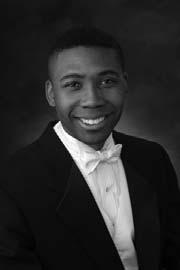 Liz Grefsheim Middle School TREBLE CHORUS
Liz Grefsheim Middle School TREBLE CHORUS


Elizabeth Grefsheim , is co-founder of The Son-Sheim Music School/Sondance studios , in Spring Lake Park, Anoka, Maple Grove and Burnsville, Minnesota. Ms. Grefsheim directs “Rainbow Kids”, a children's choir, teaches private voice for all ages and is the music director of the Parish Choir at Epiphany Catholic Church in Coon Rapids. Ms. Grefsheim directs choral festivals of all age levels and presents workshops and vocal/choral clinics throughout the United States. Through teaching singers of all ages, Ms Grefsheim seeks to empower each individual to discover their potential. She hopes to inspire others through her love of music. Ms Grefsheim has directed children's state honor choirs, the most recent were in Alabama, Minnesota and Wisconsin . She is a frequent adjudicator for the Minnesota State High School League . Ms. Grefsheim is Associate Executive Director and faculty member of The VoiceCare Network. She is active member of MENC and ACDA . Elizabeth is married and has 5 children.
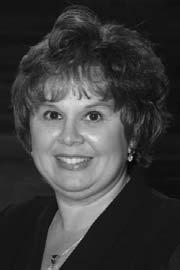 Rollo Dilworth Middle School MIXED CHORUS
Rollo Dilworth Middle School MIXED CHORUS



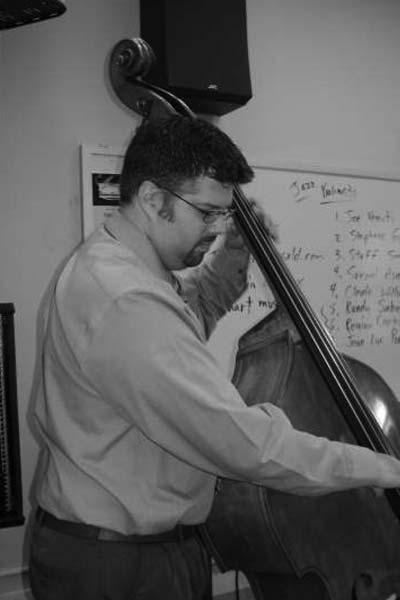












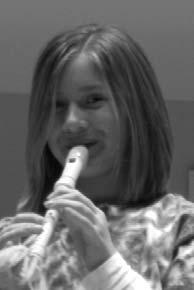






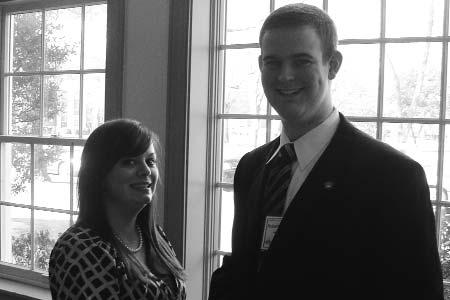












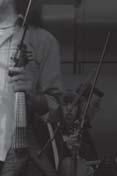






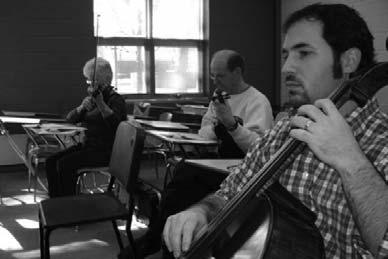









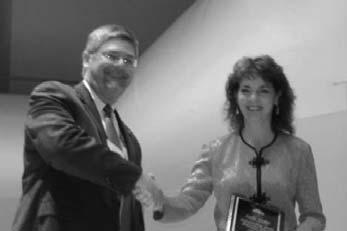





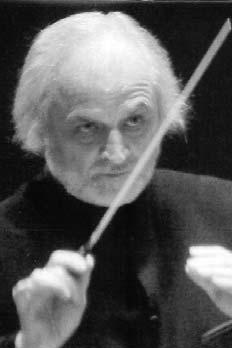



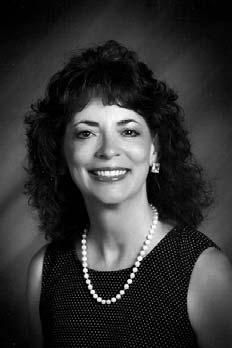




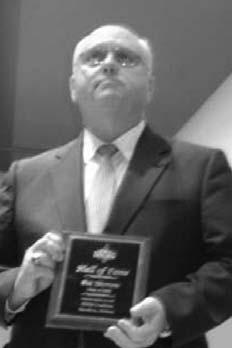



 Outstanding Administrator
Dr. Philip Hammonds Jefferson County Schools
Outstanding Music Educator Leslie Welker
AMEA Hall of Fame Class of 2009
Roland Lister
Pat Morrow
David Walters
Outstanding Administrator
Dr. Philip Hammonds Jefferson County Schools
Outstanding Music Educator Leslie Welker
AMEA Hall of Fame Class of 2009
Roland Lister
Pat Morrow
David Walters
 Penney Adair, President, Alabama Orchestra Association
Penney Adair, President, Alabama Orchestra Association


We are just a short two weeks away from the All State Orchestra Festiva,l scheduled for Feb. 12-15 at the University of Alabama School of Music and everything is starting to fall into place thanks to the many efforts of the AOA board and its members! Thank you to all who have volunteered your time helping with scheduling and Pre-Festival arrangements and to those who have signed up to help during Festival weekend! Of course this venue is not a one person job but as I’ve learned over the past 4 years, it takes a selfless body of people to achieve success so I thank you all!
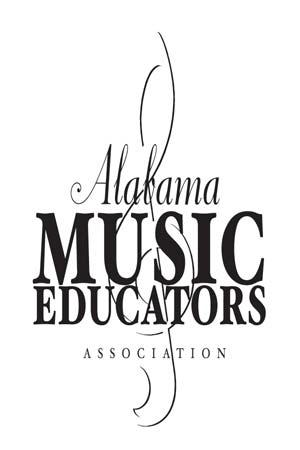
A lot of details were worked out at the conference last week between so many
exciting sessions and performances. AOA presented 4 sessions including a wonderful jazz improv sequence with Chip Gulbro and UA’s Chris Kozak. Their insight into teaching jazz basics and understanding the fundamentals was very enlightening. The Friday sessions included Michael Gagliardo on Programming for a Wider Audience, which presented new ways of pulling in community interest for any music program along with Mark Wood from Trans Siberian Orchestra who presented a session on his educational method “Electrify Your Strings”. As if that weren’t enough, we also enjoyed the Etowah Youth Orchestra perform that evening featuring Mark Wood as soloist with his composition “Viper vs. Orchestra” under the direction of Michael Gagliardo. WOW! What an inspiring concert not only to watch as a music enthusiast but to witness the inspiration and pride the students of Mr. Gagliardo
experienced. It was palpable. Thank you Mike and Mark for letting us be part of the excitement!
Also, at our AOA general meeting last week, we presented a new slate of officers to be voted on next month. The new board will be Marcy Jedlicka, President – Tim Alford, Vice-President/President Elect –Daniel Jamieson, Treasurer and Felicia Sarubin, Secretary.
It’s been a privilege serving on the AMEA governing board and the AOA Executive Board for the past two years and I look forward to continuing on as Past President.
Gene Black - Inaugural Class of 2008
Colonel Carleton Butler - Inaugural Class of 2008
Ed Cleino - Inaugural Class of 2008
William Dawson - Inaugural Class of 2008
William Denison - Inaugural Class of 2008
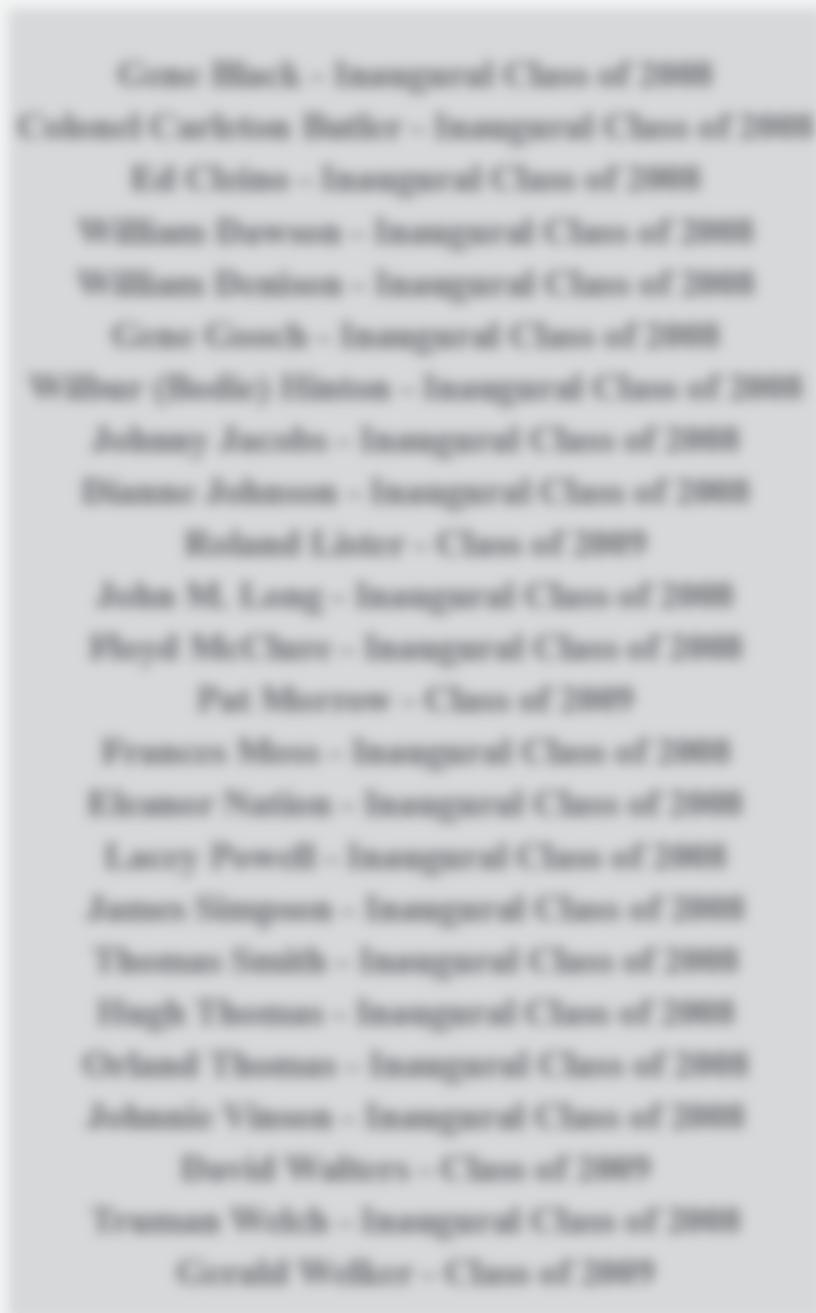

Gene Gooch - Inaugural Class of 2008
Wilbur (Bodie) Hinton - Inaugural Class of 2008
Johnny Jacobs - Inaugural Class of 2008
Dianne Johnson - Inaugural Class of 2008
Roland Lister - Class of 2009
John M. Long - Inaugural Class of 2008
Floyd McClure - Inaugural Class of 2008
Pat Morrow - Class of 2009
Frances Moss - Inaugural Class of 2008
Eleanor ation - Inaugural Class of 2008
Lacey Powell - Inaugural Class of 2008
James Simpson - Inaugural Class of 2008
Thomas Smith - Inaugural Class of 2008
Hugh Thomas - Inaugural Class of 2008
Orland Thomas - Inaugural Class of 2008
Johnnie Vinson - Inaugural Class of 2008
David Walters - Class of 2009
Truman Welch - Inaugural Class of 2008
Gerald Welker - Class of 2009
Sharon August (2007)
Donna Blethen (2005)
Laura Butler (2007)
Brian Cocke (2008)
Beth Davis (2006)
Theresa McKibben (2004)
Vicki Portis (2002)
Melinda Pruitt (2006)
Jennifer Thompson (2007)
Rhonda Tucker (2003)
Amy Womack (2005)
Sara Womack (2007)
Walter Wren (2005)
David Allinder (2008)
Jeff Calvert (2007)
John Cooper (2007)
Laura Doss (2006)
Donald Dowdy (2005)
Mark Foster (2007)
Daniel Hornstein (2007)
Lee Mason (2007)
Christian Payne (2004)
Robin Roberts (2007)
Elizabeth Stephenson (2003)
Renee Thomas (2007)
Theo Vernon (2003)
Chris Walker (2008)
Megan Wicks (2003)
Regina Yates (2005)



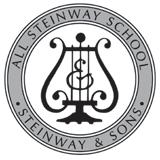

Saturday, February 14, and Saturday, March 28

Friday, March 6 (instrumentalists only)
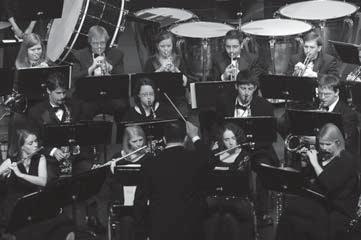

Woodwind Workshop



Friday, February 6–Saturday, February 7
Friday, February 27
Friday, March 6–Sunday, March 8





Tuesday, March 10
Saturday, April 4
Friday, April 24–Saturday, April 25
Friday, May 8

www.montevallo.edu/music
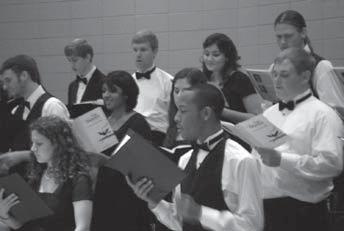
Colleges and universities are encouraged to submit newsworthy material and announcements for publication in ala breve
Auburn University is pleased to welcome three new faculty members to the Music Department
holds degrees from Peabody, as well as the Cincinnati College-Conservatory and the University of Wisconsin. His teachers have included Bill McGraw, Thomas Grubb and Bill Eddy. Dr. Koon has performed with organizations such as Seattle Opera, Baltimore Opera, the Baltimore Chamber Opera and the Rochester Oratorio Society. His research interests include advanced study of French lyric diction and repertoire, as well as historical vocal pedagogy.
From UAB...
UAB Clarinet Retreat
A native of Germany, Henning Vauth holds degrees in piano performance and piano pedagogy from the Hochschule für Musik und Theater Hannover in Germany, the Ecole Normale de Musique in Paris, France, and Western Michigan University. He has recently finished the degree Doctor of Musical Arts in Piano Performance and Literature at the Eastman School of Music. His principal teachers include Dr. Nelita True, Prof. Nelson Delle-Vigne Fabbri, and Prof. Einar Steen-Nokleberg. Aside from performing and teaching, Mr. Vauth is avidly pursuing research in piano pedagogy and performance studies. Featured in leading American journals such as Human Movement Science (2008) and Movement Disorders (2004), he co-authored articles on focal dystonia and the influence of practice on developing motor skills in pianists.
Drs Kathleen M. Allen and Michael Koon come to Auburn from the Crane School of Music at SUNY Potsdam in New York. Dr. Allen, a spinto soprano, holds degrees in voice from the University of Wisconsin-Madison and the Peabody Conservatory of Music, where her teachers have included Ilona Kombrink, Stanley Cornett, Bill McGraw and Thomas Grubb. She has performed nationally with conductors such as Richard Westenberg, Stephen Cleobury and Dr. Robert Fountain. Her research interests include care of the professional voice, vocal pedagogy/ vocology and the music of female composers. Dr. Koon, who teaches applied voice, singer’s diction and opera workshop,

Registration is open to clarinetists of all ages for the eighth annual UAB Clarinet Retreat, February 28-March 1, in the UAB Mary Culp Hulsey Center, 950 13th St. S. Registration is $50. The weekend features recitals, rehearsals and master classes with clinicians as well as a final concert featuring all participants. All recitals and the concert are free and open to the public. For information or to register, contact retreat coordinator and UAB associate professor of clarinet Denise Gainey, D.M.A. at clarinet@uab.edu or call 205-975-0558. Clinicians for the weekend include Gainey and Deborah Bish, D.M.A., clarinet professor at the Florida State University, as well as other local professional clarinetists. Gadsden Music will provide a display of instruments and equipment, along with representatives from Leblanc Clarinets, Conn-Selmer, Co. A potpourri recital featuring The Alabama Clarinet Ensemble is planned for 10 a.m. Saturday, February 28th, in the UAB Mary Culp Hulsey Recital Hall, 950 13th St. S. At 7:30 p.m. Saturday, February 28th, Gainey and Bish will perform a recital in the UAB Mary Culp Hulsey Recital Hall, assisted by Dale Reynolds of the UAB Department of Music. A final recital featuring all retreat participants is planned for 3 p.m. Sunday, March 1, in the UAB Mary Culp Hulsey Recital Hall, 950 13th St. S. All three recitals are free and open to the public. Call 205-975-0558 for more information.
Troy University Symphony Band releases new compact disc
The Troy University Symphony Band has released a new compact disc entitled Stormworks, Chapter 13: Whispers on the
Wind which marks the band’s second collaboration with internationally renowned composer Stephen Melillo. Ralph Ford, Director of Bands at Troy University, conducted the Symphony Band, working with the composer and the ensemble to create this highly original recording. The first collaboration between Stephen Mellilo, Ralph Ford and the Troy University Symphony Band was Stormworks, Chapter I∞: A Wish to the World. The compact disc was recorded during May of 2007 with additional recording taking place in May and October of 2008. It was formally released in December 2008. It is available on conventional compact disc, digital download from sites such as iTunes and through a new technology called the digimusic card. The digi-music card is a credit card with a special serial number. To use the serial number, the user goes to the website, www.digi-cards.net, enters the code, and the music and liner notes are instantly downloaded to the computer and installed in software such as iTunes or Windows Media Player. The Troy University Symphony Band is the first university band to utilize this new music and media delivery system. Additionally, the Stormworks, Chapter 13: Whispers on the Wind digimusic card was featured in the November 8 issue of Billboard magazine on page 11. For this recording, the composer called for the use of multiple synthesizers as instruments on equal footing with the wind and percussion instruments. Oftentimes, synthesizers are used to replace a harp, piano or some other difficult to obtain instrument. In this case, however, the synthesizers were utilized as instruments in their own right, with their own particular set of timbral, textural and harmonic qualities and possibilities that blended seamlessly with the winds and percussion. In this way, the Symphony Band functioned more like a studio ensemble with the wide variety of sounds that became available with the use of the electronic instruments.
The centerpiece of the recording is Last World Standing, which at 33 minutes would be a major undertaking for any ensemble. The Troy Symphony Band was one of three ensembles that commissioned this ambitious work that incorporates prerecorded tracks, traditional symphonic band music, vocalists, dance, and graphic imaging.

UNIVERSITY OF ALABAMA
SCHOOL OF MUSIC FACULTY
GUEST ARTISTS
EXPANDED OFFERINGS FOR 2009
Marching Percussion
Colorguard- Flag/Rifle/Sabre
Majorette
Danceline
Middle School Concert Band Voice
June 10-14, 2009
Jazz and Marching Band
June 14-19, 2009
Concert Band, Piano & Voice
Randall Coleman Crimson Music Camp Director Associate Director of Bands205-348-6068
For more information:
web: www.music.ua.edu
email: crimsonmusiccamp@ua.edu
Awarded to a person “who has clearly given very special service to AMEA or to the goals and purposes of AMEA.” The recipient is “clearly recognizable statewide, and the service for which the award is given, represents a longrange commitment that, in every way, can be considered extraordinary and distinguished.” The person has given tirelessly and selfishly to the cause of music education in Alabama and this person’s service would be greatly missed. Forms must be received by July 15. The presentation of the awards is scheduled for the AMEA Conference in January 2010. Please remove or copy the form below, and mail completed form and papers to: Garry Taylor, AMEA Executive Director, 1600 Manor Drive E, Cullman, Alabama 35055
Qualifications:
1. Nominee must have served the cause of music education in Alabama.
2. Nomination must be made by a current member of AMEA.
This nomination should be accompanied by the following:
1. A list of specific actions which have initiated, supported and/or enhanced music education in Alabama.
2. Four (4) letters of recommendation from school personnel, community leaders and/or parents.
DEADLI E: JULY 15, 2009
Name of Nominee
Address
Present Position
Nominated by
Address
Present Position
AMEA honors its members and administrators who have shown special interest and dedication to music education in Alabama. Various individuals have been honored with AMEA’s “Outstanding Music Educator” and “Outstanding Administrator” awards because members have taken the time and interest to nominate them. These awards provide our organization the opportunity to honor those who have set high standards for our profession, and who give all of us inspiration and direction. It is likely that every member knows of colleagues or former teachers who have influenced him or her greatly, and who should be honored with our recognition. Forms must be received by July 15. The presentation of the awards is scheduled for the AMEA In-Service Conference in January 2010. Please remove or copy the forms below, complete them, and mail your nominations to Garry Taylor before July 15, 2009.
OMI EE FOR OUTSTA DI G SCHOOL ADMI ISTRATOR
Mail completed form and supporting papers to: Garry Taylor, AMEA Executive Director, 1600 Manor Drive E, Cullman, Alabama 35055
Name of Nominee
Address
Present Position
School System
Number of cumulative years served as an administratorNominated by
Qualifications:
1. Administrator must have served a minimum of ten (10) cumulative years in any school system(s) and/or collegiate institution(s) in Alabama.
2. Nomination must be made by a current member of AMEA.
This nomination should be accompanied by the following:
1. A list of specific actions which have initiated, supported and/or enhanced music programs in the system which the nominee administers.
2. Four (4) letters of recommendation from school personnel, community leaders and/or parents.
DEADLI E: JULY 15, 2009
OMI EE FOR OUTSTA DI G MUSIC EDUCATOR
Mail completed form and supporting papers to: Garry Taylor, AMEA Executive Director, 1600 Manor Drive E, Cullman, Alabama 35055
Name of Nominee
Address
Present Position
School System
Number of cumulative years served as a music educatorNominated by
Qualifications:
1. Educator must have served a minimum of ten (10) cumulative years as a music educator in any school system(s) and/or collegiate institution(s) in Alabama.
2. Nomination must be made by an AMEA member or by a school administrator. AMEA Board members are ineligible for nomination during their terms of office.
This nomination should be accompanied by the following:
1. A list of specific actions which have initiated or enhanced music education at the local level and/or at state, regional or national levels.
2. Four (4) letters of recommendation: one from a fellow music teacher and three others from any appropriate source. (May include one from a former student, if available.)
DEADLI E: JULY 15, 2009
Name of Nominee________________________________________________________________________
Teaching Field___________________________________________________________________________
Name of School(s)________________________________________________________________________
Current StatusActive_____Retired_____Deceased_____
Number of years spent in teaching, administrating or supporting music education in the state of Alabama ___________Dates___________________________________________________________
Nominee's Address________________________________________________________________________ City______________________________________State_______________Zip________________________ Telephone__________________________Email________________________________________________
In your letter of recommendation please address the following qualifications:
1. Member of AMEA/MENC and/or supporter of music education and/or professional musician.
2. Excellence in teaching or administration
3. Contributions and improvements made in music education.
4. Betterment of our profession through exemplary service or acts.
5. Professional offices, publications, awards, performances.
6. Professional ideals and academic integrity.
7. Age 55 or older.
Please provide three letters of recommendation from any of the following: students, administrators, fellow teachers, community, state or national leaders.
Nominator______________________________________________________________________________ City______________________________________State_______________Zip________________________ Telephone_________________________Email_________________________________________________
Send this form along with your letters of recommendation by July 15, 2009 to:
GarryTaylor,
Executive Director Alabama Music Educators Association1600 Manor Drive NE Cullman, Alabama 35055
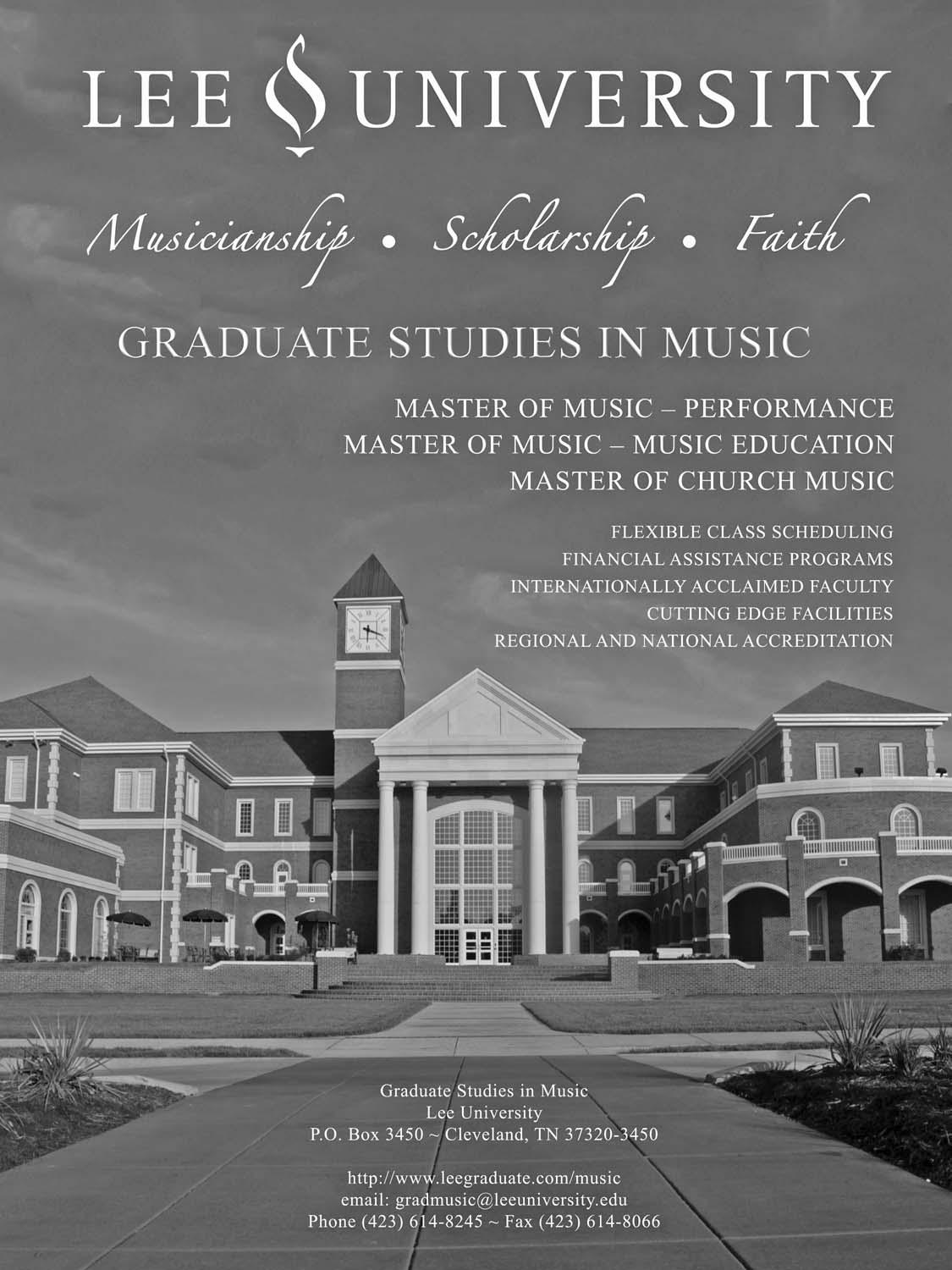
Name____________________________________________________________________________________
Address ___________________________________ City __________________ State ___________ Zip _____________
Phone (_____) ______________________________________Email __________________________________________
Proposed Session Title ______________________________________________________________________________
Session Description _________________________________________________________________________________
Division (please check all that apply):
_____ Alabama Vocal Association_____ Alabama Bandmasters Association_____ Higher Education
_____ Collegiate (CMENC)_____ Alabama Orchestra Association_____ Elementary/General
• Session proposals must be submitted by the individual who will be presenting the session as the primary clinician.
• All Alabama clinicians who are music educators must be members of MENC and must register for the conference in order to present a session.
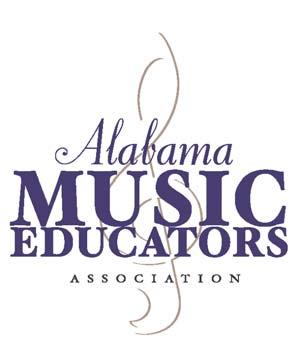
• AMEA does not pay honoraria or expenses to its members.
• Individual requests for particular times cannot be granted. Submission of a proposal assumes acceptance of the scheduled times.
• If the session is accepted, the primary clinician will be responsible for informing all other participants of all the specifics relating to the session.
Please attach a black and white photograph and clinician biography (100 words or less)
Submit to:
Garry Taylor, Executive Director
1600 Manor Drive E, Cullman, Alabama 35055 O
Name of Ensemble __________________________________________________________________________________
Current # of Members ________________________________________Age Level of Ensemble ____________________
School ____________________________________________________ Director _______________________________
Address ___________________________________________________ City ______________________Zip _________
Phone: School (_____) ______________________________________Home (_____)____________________________
Email ____________________________________________________________________________________________
Division (please check all that apply):
_____ Alabama Vocal Association_____ Alabama Bandmasters Association_____ Higher Education

_____ Collegiate (CMENC)_____ Alabama Orchestra Association_____ Elementary/General
Conditions:
• Submission must include completed performance application, high quality recording of the ensemble (no more than two years old), programs from recent concerts, biography of the conductor and performing group, picture of the performing group and two letters of recommendation. (A current photograph of the group and conductor will be requested should the ensemble be selected to perform.)
• Recordings must include two varied selections of high-quality literature.
• Consideration will be given to level of musical quality, variety, as well as overall conference schedule and planning.
• Directors will be notified of selection by July 15, 2009
Please attach a black and white photograph of the performing group, biography of the group and conductor (100 words or less each), recent concert programs, and two letters of recommendation. Submit to:
Garry Taylor, Executive Director
1600 Manor Drive E, Cullman, Alabama 35055
O LATER THA JU E 1, 2009
AMEA Conference
University of Alabama
January 22-24, 2009
All-State Orchestra Festival
University of Alabama
February 12-15, 2009
AMEA In-Service Conference/All-State Jazz Band
January 22-24, 2009 - University of Alabama
State Concert Band Assessment
March 2-3 - UA, Tuscaloosa & Briarwood Church, B’ham
March 4 - Troy University & Gadsden City HS
March 5 - Baker HS, Mobile & Decatur HS
District I
District Honor Band
All-State Band Auditions
District Band Assessment
Solo & Ensemble Festival
District II
District Honor Band
All-State Band Auditions
District Band Assessment
Solo & Ensemble Festival
District III
District Honor Band
All-State Band Auditions
District Band Assessment
Solo & Ensemble Festival
District IV
District Honor Band
All-State Band Auditions
District Band Assessment
Solo & Ensemble Festival
District V
District Honor Band
All-State Band Auditions
District Band Assessment
Solo & Ensemble Festival
District VI
District Honor Band
All-State Band Auditions
District Band Assessment
Solo & Ensemble Festival
District VII
District Band Assessment
All-State Band Auditions
Solo & Ensemble Festival
District VIII
District Honor Band
All-State Band Auditions
District Band Assessment
Solo & Ensemble Festival
All-State Solo Festival
April 15, 2009 - Auburn University
All-State Band Festival
April 16-18, 2009 - Auburn University
Summer In-Service Conference
June 24-25, Hilton Garden Inn, Orange Beach
February 27-28....................................Austin High School
January 30-31.................................Sparkman High School
February 18-20..................................Decatur High School
February 18-20...................................Huntsville Site TBA
March 28...............................Meridianville Middle School
April 25............................................Hartselle High School
February 6-7................................................Gadsden State
January 10..................................Jacksonville High School
February 18-20.............................................Gadsden State
March 28....................................Jacksonville High School
April 25 .................................................Arab High School
February 20-22.................................Cullman High School
January 31...............................Muscle Shoals High School
February 9-10...................................Cullman High School
February 11-12.......................Muscle Shoals High School
May 2 University of North Alabama
February 27-28............................Homewood High School
January17...........................................Hoover High School
February 10-12............................Homewood High School
February 10-12.................................Vestavia High School
April 28....................................Homewood Middle School
May 2.........................................Thompson Middle School
February 13-14.......................University of West Alabama
January 31..............................Tuscaloosa Co. High School TBA.............................................................................TBA
March 28..........................................Prattville High School
April 14...........................Tuscaloosa County High School
February 27-28..............Central High School, Phenix City
January 31..........................................Opelika High School
February 18-20..................Benjamin Russell High School
March 7.................................. Auburn Junior High School
April 4.................................................Trinity Presbyterian
February 17-18................Mary Montgomery High School
February 19-20................................Davidson High School
January 17.......................................Davidson High School
April 25................................................Baker High School
May 2...............................................Fairhope High School
February 27-28...........................................Troy University
January 17............................Andalusia Elementary School
February 17-19...........................................Troy University
May 2...................................Andalusia Elementary School
Fall Workshop - September 5-6 - Dawson Memorial Baptist Church, Birmingham
All-State Show Choir Auditions - October 17-18 - Bluff Park Methodist Church, Birmingham
All-State - February 25-28 - Samford University, Birmingham
State Performance Assessment - April 20-22 - Bluff Park Methodist Church, Birmingham
VI
VII
October 10 – AMEA Elementary Music Festival, Wright Center at Samford University
October 11 – AMEA/AL AOSA Fall Workshop with Susan Ramsay, Greystone Elementary
November 12-15 – AOSA National Conference, Charlotte, North Carolina
January 22-24 – AMEA In-Service Conference, Tuscaloosa
February 21 – AL AOSA Spring Workshop with Thom Borden
Beginning teachers often struggle with the daily routine of teaching. In some cases, they may apply for a job, interview and begin teaching students in a little as a twoweek span. As much as their music and music education professors try to prepare them, ultimately, the tasks required for successful teaching fall on the teacher and it is up to each individual to take up the exciting challenges of teaching. One thought that can give new teachers (or any teachers) pause is the idea that they are responsible for teaching kids everything they need to know in order to successfully read music. If this causes anxiety, it can be exacerbated when high school teachers tell middle school teachers, and middle school teachers tell elementary teachers, “You need to do a better job getting kids up to par on their music reading skills.” All at once, it seems that the responsibility for teaching kids to read music has rolled down the hill to sit at the feet of a music teacher teaching kindergarten students. Where do you begin? One person might say, “Start with solfège. Kids must know solfège!” Another might disagree and say, “No, they have to know the numbers for each note in the scale.” A third might argue, “You must begin with the staff. Kids must know all of the letter names on the grand staff.” Got all of that? Okay, get to work. Seriously, any or all of these suggestions would be fine, except that these do not say where to begin, only what the end result should be. So, in the words of Michael Feinstein, “Where Do You Start?” (1987). Where else but the MENC National Standards?
There are nine MENC National Standards (1994) and each focuses on an important way of knowing in music. Using these to guide lesson planning and teaching can help new (and not-so-new) teachers focus on teaching music comprehensively, rather than focusing on singular elements. When students achieve in each of the nine, they gain a background of musical information that is necessary for learning to read music. Let us look at the nine standards and think about music reading.
When children learn to sing large amounts of melodies within many different harmonic structures, they are also learning to hear those melodies. Often teachers expect that music reading will come naturally and begin with staff notation. Without the foundation of hearing and then singing those melodies, students are missing an essential part of music reading. If they have never heard it before, how can they be expected to read it from a page? When does singing begin? It most likely begins on day one in Kindergarten. So by the time a student reaches a middle school vocal or instrumental program, he or she should have a wealth of “singing knowledge” from which to draw information necessary for singing or playing patterns in music. He or she has a better chance at learning to anticipate because of the aural background received over many years of singing and has less steps in the process of learning to read musical notation.
Standard 2:
harmonies on instruments brings, students begin in a secondary music program illprepared and teachers at that level must fill in the missing gaps of information needed to begin to read notation.
Standard 3:
If students can learn to hear music in a way that allows them to freely improvise melodies and variations using many different accompaniments or harmonic structures, this is definitely a key to beginning to read music. Inner hearing and at least some understanding of a musical structure, even it if it first graders improvising on a pentatonic scale, can lead to music reading. If students can improvise with their voices or on instruments, melodies that “sound good” with the I, IV, and V chords, then they have a better chance at quickly understanding what similar melodies look like on a staff. In addition, these skills become part of the child’s background in music and contribute to his or her ability to anticipate what should come next.
Performing on
Similar to number one, students may have a difficult time entering a secondary-level music program and learning to read if they have not played instruments. This does not mean that all of the elementary teachers must now also teach beginning band. No, this means teachers should have all children play many different melodies with different harmonic structures using both pitched and unpitched instruments. As with the first standard, hearing and interpreting melodies and harmonies is a foundation. If a sound or sequence of sounds is unfamiliar, then students will have difficulty reproducing it on an instrument (or voice). Since part of successful music performance is anticipating, having the aural training is necessary to anticipate subsequent pitches, for example in a scalar or arpeggiated passage. Without the wealth of knowledge playing many different melodies and
Standard 4:
One must remember that “composing music” does not necessarily mean a child is notating music (writing it out or putting it into notation software). When a child is putting his or her own musical ideas in an order that makes sense, he or she is composing. It stands to reason if musical ideas a present, they may also be part of the necessary aural background a student must have to begin reading music. When students think about how music is constructed, and then construct their own music, they gain personal understanding of necessary musical concepts, like melodic and harmonic structure and form. All of these contribute to the music reading process.
This one seems fairly obvious, but what is it really saying? Reading and notating music requires many skills. Complete a task analysis to determine the first necessary concept is in the “reading” part of this standard. Could it be steady beat? That is a concept that begins in Pre-Kindergarten or Kindergarten and remains an important part of all musicians’ professions, from novice to expert. This is where teachers begin helping students turn their aural understanding of music into symbolic representation, turning sounds into notation. All of the information they have gained through the previous four and the next four standards is used to help students connect symbolic information (staff notation) to aural and performance information.
Listening to and analyzing music is an excellent way to expose students to melodies and harmonies they need to internalize for successful music reading. It is this internalization that can help a student see notation for a I chord in C Major, understand that it is a Major triad, and hear it internally just by thinking about it. If students have never heard musical cadences, or thought about the purpose of a cadence, they will have a difficult time anticipating and singing or playing the correct pitches when a cadence comes. If they have heard suspensions in different recordings, then those whose parts generally perform the suspensions (often altos and tenors in choral music) can see it visually and make sense of it aurally because they know what a suspension sounds like. Understanding that music has a structural form can inform both a listener and performer. Knowing that ABA means the first part returns and will be close to the same, if not exactly the same, is important. Music readers who understand form, even on the most basic level, know to expect the same information when the A section comes around again.
This standard integrates well with the other nine standards. Evaluating music and music performances is necessary for students to learn to make their own judgments about
music. As a musician’s aural background grows through listening and learning to evaluate (either self or others) they will be able to make their own decisions about what they perceive as high (or low) quality music and/or performance. Evaluating a performance is necessary, especially on the first go round. If music educators teach serious evaluation, instead of moving on with “Okay, that was fine,” students will gain evaluative skills and make improvements based on self and other’s evaluations. This is a skill that is necessary for reading music. Most often what is played or sung is notated (of course there is an exception for folk music). Seriously evaluating a performance can lead students to hear discrepancies between the score and the sound that can improve their own reading and performance.
Meeting standard eight requires students to think about music in a new way, for example comparing a musical style with a similar style in art (like Impressionism) for a fuller understanding overall. When students explore music as a part of the world as a whole, rather than a singular element, they gain perspective. So how does this relate to music reading? Using Impressionism as an example again, if teachers use this alternate way of showing style visually as well as aurally, students would then have a visual idea of Impressionism that can be transferred to performance practice. Another example is as small as using mathematical fractions to teach time signatures, something that music educators often do, since there are mathematical elements in music, from rhythm structure to acoustics.
Since music is not a stagnant or unchanging medium, students must be aware of its place in their own and other cultures and they must understand how a piece of music fits in the musical history, even those works that are considered “popular” in nature. How does this relate to music reading? Understanding history can lend a better understanding of how and why certain music was created. Thinking historically, students could have a clearer understanding
of new piece, just by calling to mind that Mozart created it. Understanding Mozart’s time and place, reading an unfamiliar work by him for the first time can also incorporate style and technique required for appropriate interpretation. Another example is understanding where a popular musical composition fits culturally and in musical development. This can lend information for reading and interpretation. When students understand how to use history, they know that a song by the Beatles would not be performed the same as an excerpt from one of Mozart’s masses.
When the community of music educators joined to create the National Standards for the Arts (1994), those pioneers set forth a way to teach music comprehensively that would incorporate all of the many areas in music that exist. Music reading is one part, but it, like all of the standards is dependent upon each one of the other standards. Teachers using the national standards as a guide most likely teach comprehensively and have students who are musically skilled with the knowledge and background necessary for future participation in music. Before we can expect students to read music, we first have to teach them music. As teachers, we must open our minds to the possibility that this “thing” we call music is really many concepts and skills all expertly woven together and the ability to read it is dependent upon knowledge, understanding, and skills in all areas of music.
Mandel, J., Bergman, A. and Bergman, M. (1987). Where do you start? [Recorded by Michael Fienstein]. On Isn’t it romantic? [CD]. New York: Electra Asylum. MENC (1994). National Standards for Arts Education. Reston: MENC, 1994.
Contact Information:
Dr. Jane M. Kuehne
5040 Haley Center Auburn University, AL 36849-5212
Phone: (334) 844-6852
E-mail: kuehnjm@auburn.edu
Jane M. Kuehne is Assistant Professor of Music Education at Auburn University.Logistics:
1. There will be 8 ABA MPA performance venues
2. The site and schedule will be the responsibility of each District Chairman.
3. The date of the ABA MPA will be chosen by the district chairman.
4. The dates available for the ABA MPA will range from the 3rd Monday of February to the last day of March.
5. Exceptions for performing out of district will be granted by the State ABA President. Considerations will include the following: Distance / Time (2 hours travel time – change must improve your travel time 1 hour), Scheduling difficulties, and emergencies/weather.
Standards of Adjudication:
1. District Chairman will be responsible for hiring three stage adjudicators and one sight reading adjudicator from the ABA MPA Adjudicators List. The first year of the MPA (2010) the district chairman will submit 5 judges to the ABA Board for approval to be added to the State Adjudicator List at the Summer Convention.
2. The adjudication rubric will remain as it is currently published in the ABA Handbook.
3. The ABA President will appoint a person/committee to develop an Adjudication program to certify MPA adjudicators to start at the 2010 AMEA Clinic Conference and then at the 2010 ABA Summer Clinic. The certification program will continue each year at the locations mentioned above. In 2011 there will be at least one certified adjudicator on each MPA panel.
4. Each band will be required to Sight read at the ABA MPA. In 2010, the director may elect before the performance whether or not to include the Sight reading rating in the overall MPA rating. In 2011, all bands will be required to Sight read at MPA and the rating will be combined with the stage ratings for the overall rating of the band.
4. A band that earns Straight A’s from all stage adjudicators and the sight reading adjudicator will earn the rating of Superior with Distinction.
Finances:
$1.00 per student per band
$100.00 School Fee - First Band
$50.00 School Fee - Each Additional Band(s)
Each band will be able to purchase Plaques / Trophies / Medals in the same manner they have done in the past at State Contest.
Rationale:
At its inception in 1947, the ABA State Band Competition Festival provided an event hosted at a single site. Bands within a single classification performed back-to-back. A single panel adjudicated all F-CC classification bands while a second single panel adjudicated all B-AA bands.
Over the last 30 years, the complexity of school activities has changed, the complexity of society has changed, and State Assessment has evolved in significant ways. One site has now evolved into as many as four sites. Multiple panels are employed. Classifications are re-built each morning and again each afternoon during a performance day. The time period between District Assessment and State Assessment has shortened from approximately six weeks to as little as two weeks.
Taken as a whole, the combination of changes implores this body to examine the possibility that a major change in the structure of the two-tiered assessment is needed. The proposed Alabama Bandmasters Association Music Performance Assessment is aimed at reducing travel costs, increasing the number of bands who participate, and providing support to directors to help raise the level of musicianship within their programs.
Because so much of the ABA activity takes place at the district level, it seems logical for the assessment to be held at eight sites, one within each district. The proposal takes into account the scheduling of the events, the selection of the adjudicators, the inclusion of sight-reading, the retention of the assessment rubric, and the need for professional development in such areas as instrumental pedagogy and the teaching of sight-reading.
Delete all references to District Band Assessment.
Change all references to ‘State Concert Band Assessment’ to read ‘Alabama Bandmasters Music Performance Assessment’.
Change Article IX, Section 1, letter b to read:
District Chairmen shall be responsible for the organization and operation of the ABA Music Performance Assessment. This will include obtaining adjudicators and entering into a regulation contract with them. All adjudicator fees, travel expenses, and operational costs will be paid by the District Chairmen at the conclusion of the event. The remainder of the monies and adjudicator vouches will be forwarded with the completed ABA Music Performance Assessment report to the ABA Executive Secretary. The District Chairmen will send to the Association President a list of the participating bands and ratings given.
Article X, Section 1, letter g, change District/State Competition to Alabama Bandmasters Music Performance Assessment.
Change Article XVI to read: Alabama Bandmasters Music Performance Assessment
Section 1 to read: The Purpose of ABA Music Performance Assessment
Delete Article XVI, Section 1, letter a.
Change Article XVI, Section 1, letter b to read: The purpose of the Alabama Bandmasters Music Performance Assessment is to give qualified bands the opportunity to be evaluated and criticized by a panel of qualified adjudicators. The panel shall consist of three (3) concert adjudicators and one (1) sight-reading adjudicator. A panel of adjudicators shall be engaged by the District Chairmen. ABA MPA adjudicators must be selected from the approved ABA Music Performance Assessment Adjudicators List with at least one of the concert adjudicators being an ABA certified adjudicator.
Change Article XVI, Section 2, letter a, sentence 1 to read: For purposes of the ABA Music Performance Assessment, bands are classified according to enrollment as follows:
Change Article XVI, Section 2, letter d, to read: A band entering the ABA Music Performance Assessment consisting of students from two or more schools must count the combined enrollment of schools involved as stated in paragraphs a. and b.
Change Article XVI, Section 2, letter g, to read: Unusual circumstances can, at times, prevent bands from participating in the ABA Music Performance Assessments within their prescribed classification.
Delete Article XVI, Section 2, letter g, number 2.
Change Article XVI, Section 3, letter a, to read: A band may play a maximum of 25 minutes performing time. A program which consists of fewer than three selections must be at least 20 minutes performing time. Any band which exceeds its allotted time will not be eligible to receive a “I” rating. A band playing a program of two (2) selections may request an extension of performing time, not to exceed ten (10) minutes. Requests for time extensions at the ABA Music Performance Assessment must be received by the President for approval at least 20 days prior to the first day of the Assessment. No performing time extensions will be granted for programs consisting of three selections.
Change Article XVI, Section 3, letter d, to read:
Fees for ABA Music Performance Assessment shall be as found in the Fee Schedule, Article XIX. ABA will furnish cassette tapes for adjudicator’s comments. It is the director’s responsibility to submit registration and fees to the District Chairman for the ABA Music Performance Assessment.
Change Article XVI, Section 3, letter e, first sentence to read:
The District Chairman will appoint an adult Stage Manager (who will be paid if necessary) and a Stage Crew for ABA Music Performance Assessment.
Delete Article XVI, Section 3, letter f.
Change Article XVI, Section 3, letter g, to read:
The President has the authority to set a postmark deadline for submitting registrations for the Alabama Bandmasters Music Performance Assessment up to 30 days prior to the first day of the ABA Music Performance Assessment. Those not complying will not be allowed to participate in the ABA Music Performance Band Assessment.
Delete Article XVI, Section 3, letter h.
Change Article XVI, Section 3, letter i, to read:
The Alabama Bandmasters Music Performance Assessment will be held between the third Monday of February and the last day of March. There will be eight sites, (one in each District). The dates and performance venues are to be selected by each District Chairman. Registration will be handled by the District Chairman. Exceptions for performing out of District will be granted by the State ABA President. Considerations will include the following: Distance / Time (two hours travel time – change must improve travel time by one hour), Scheduling difficulties, and Emergencies / Weather.
Continued on the next page...
Change Article XVI, Section 3, letter i, number 1, to read: Only students who are enrolled in their high school, junior high school, or middle school band are eligible to participate in the Alabama Bandmasters Music Performance Assessment.
Article XVI, Section 3, letter i, number 2, replace District and State Band Assessment with ABA Music Performance Assessment.
Change Article XVI, Section 4, to read: Alabama Bandmasters Music Assessment Sight-Reading.
Article XVI, Section 4, letter a, change State Concert Band Assessment to ABA Music Performance Assessment.
Change Article XVI, Section 5, to read: Alabama Bandmasters Music Assessment Ratings.
In Article XVI, Section 5, after Division IV insert the following A band that earns straight A’s in every caption, (including Sight-Reading), will earn the rating of “Superior with Distinction”.
Change Article XVI, Section 6, to read: Alabama Bandmasters Music Assessment Awards.
In Article XIX, Fee Schedule, delete District Concert Band Assessment, change State Concert Band Assessment to ABA Music Performance Assessment and insert: State Concert Band Assessments$1.00 per student, $100.00 school fee per band, $50.00 school fee each additional band
Article XIX. Fee Schedule
The following fees shall be charged for ABA events:
All-State Jazz Band$10.00 per student
$10.00 school fee
All-State Tryouts$5.00 per student
$1.00 to remain with the District
All-State Band$10.00 per student $15.00 school fee
District Concert Band Assessment $1.00 per student $50.00 school fee per band
State Concert Band Assessments$1.00 per student $50.00 school fee per band
Solo and Ensemble Festival$5.00 per event with $1.00 per event retained by the District $10.00 school fee
Jazz Band (Solo and Ensemble)$ 2.00 per student $10.00 school fee*
* The school fee is only in the event of no other solo/ensemble entries. It is not an additional school fee. Registration is subject to a $50.00 late fee if postmarked after the deadline.
Change Article XIX. Fee schedule to read as above except:
All-State Tryouts$10 per student, $2 to remain with the District
Rationale:
This increase in the All-State audition fee will improve the income to the ABA and District accounts from this fee source. Districts will charge each student $10, sending $8 to the ABA and keeping $2 in the District. This change will help ABA and its Districts meet the costs of doing business that have risen through inflation and due to the present economy. Students have become accustomed to paying higher fees for services and events. Raising this fee will not discourage students who are motivated to audition for All-State and the fee will not place a disproportionate burden on any single school or District.
Submitted: Harry L. McAfee, President 1/21/09
Change Article XVI, Section 3, letter ‘b’ to read: b. One selection must be from the Alabama Bandmasters cumulative list for the band’s classification or higher. Directors who wish to have a composition considered for placement on the cumulative list for the upcoming school year must submit a completed ‘Recommendation Form For Additions To The Cumulative Music List’ and score (with a recording if available) to the ABA Vice-President by the first Friday in June. The Vice-President and the Music Selection Committee will examine and review additions requests at the summer conference to determine permanent placement on the cumulative list for the next academic school year. The updated cumulative list will be published on the ABA website by October 1.
Rationale:
We have an extensive Cumulative List and directors should be required to select one Assessment composition from that list. This proposal will also clarify procedures for additions to the present list.




